Please note, links to all the Freedom Essays are included at the end of this essay. Open any essay to read, print, download, share or listen to (as an audio).
Freedom Essay 62
‘Jeremy Griffith’s 2019
Masterpiece Presentation’
Recorded in Sydney, 9 February 2019
In this masterpiece presentation, biologist Jeremy Griffith demolishes the false ‘savage instincts’ excuse for human behaviour, describes humanity’s true innocent loving heritage, and explains how the true understanding of the human condition now makes possible the real therapy and rehabilitation of the human race.
(Note that since this presentation was filmed in 2019, THE Interview has been published and now appears at the top of the WTM’s homepage as the ideal introduction to Jeremy’s breakthrough explanation of the human condition, in conjunction with The Great Guilt that causes the Deaf Effect, The Great Transformation, and videos 1-4 & video 14 in the Main Video series, the latter of which are referred to in this presentation.)
Make and see comments here
The Transcript of this video
Contents
Part 4 Achieving Some Psychological Repair For The Conduit Generation
Part 5 The Healing of Humankind Where Everything Changes For The Better
Welcome
Jeremy Griffith: We have 50 Sydney World Transformation Movement [WTM] members here today and 31 members from other WTM Centres around the world, either in this room or watching on screen or listening online. So a very big and huge welcome to everyone! So we’ve got here, just to quickly name some of them: Stefan, Gerald, Sophie, here from the Austrian WTM Centre—and Chris and Geri in Austria; Sam, Frank, Chris, Nikola, Ari, Des, Nicoletta and Katarina from the Melbourne WTM Centre; Aggie from the Brisbane WTM Centre; Pete from the New Zealand WTM Centre; Roz from the UK WTM Centre; Olof from the Swedish WTM Centre; Gerry from the WTM US Centre; and Annette from Vancouver, Dave from Wales, Karen from Toronto, Bill and Cindy from Vancouver, Louis from Spain, and Joseph from Cairns (in Australia). Also Rick and his girlfriend Min are interested onlookers here. [Since this presentation three of the attendees listed have opened WTM Centres—Annette Williamsen on Canada’s West Coast; Karen Riley in Central Canada; and Joseph Ahie in North Queensland, Australia.]
And we’ve also got Harry, Professor Prosen, my very close friend, guide and help from the United States, who you can see watching on screen.
So, yes, welcome everyone!
Part 1 Introduction
It’s already obvious that the four main activities of the human-condition-solved new world are:
1. Spreading the world-saving understanding;
2. Repairing human society and the world;
3. Teaching the Transformed Way of Living; and
4. Achieving some psychological repair for the exceptionally upset so they can be operational in the new all exciting transformed world.
Now, to better explain the fourth activity—this is from paragraph 1160 of FREEDOM: The End Of The Human Condition [FREEDOM]: ‘Even though with understanding of the human condition now available and making it possible to completely psychologically repair the upset in everyone we presently can’t obviously afford the time it would take, however those who are especially crippled with extreme psychological upset will want to achieve at least enough psychological repair of themselves to allow them to effectively participate in the new all exciting transformed world.’
So activities one and two are obvious, and three—the Transformed Way of Living—is being looked at elsewhere. So what I want to mainly focus on is activity four: how the exceptionally upset can achieve enough psychological repair to be operational. To do that I want to begin by quickly going over the overall understandings we now have of the human condition, elaborating on certain points.
So strap yourself in! We are going to go through the whole understanding, elaborating on the main points. I hope everyone has at least watched the Videos 1-4 and Video 14 [of the Introductory Video Series towards the top of the WTM homepage] because that’s the grounding that everything is built around. (Note, these 14 Videos are repeated in the first 14 Freedom Essays.)

Videos 1-4 & 14 of the Introductory Video Series at the top of the WTM homepage
are key to understanding the human condition
Now, everyone out there is basically still in shock about these understandings, as evidenced by the feedback we’re getting to the Questionnaire for Videos 1-4 and Video 14, which show that people are struggling to absorb it. But when we start getting responses from thought leaders as excited as some of the responses we are now getting more and more of from the general public, and this reefs us forward from the numb, silent, ‘shock of the truth’ stage, I’m sure that everyone will think about, and want to know more about, how innocent our species once was; how soul-spent, exhausted and mind-numbed and alienated we all now are; and how we can now come back to life—so those are the topics we will cover, especially, as I mentioned, how we can come back to life.
Firstly, I do want to emphasise how important and special the first 4 videos on our website are—especially Video 4 because it turns all the dishonest, ‘cave-speak’, world of denial on its head by revealing just how innocent our ape ancestors were through just a few words and a few powerful quotes from Moses, Heinberg, Hesiod and Plato. And of course there are the amazing revelations about bonobos and the nurturing origins of our soul in that Video 4, and then all the undeniable truth from Sir Laurens van der Post and Fyodor Dostoevsky and others. I think those few videos are a perfect condensation of FREEDOM; in just two and a half hours of talk, a complete demolition of the dishonest world we have been living in and the building of a whole new rehabilitated true one takes place, and so people do really need to watch those videos again and again because there’s just so much in them to absorb.
So those first 4 videos, as well as Video 14, are incredible to my way of thinking. We’ve got Moses corroborating the ‘instinct vs intellect’ story by saying we once lived in an Edenic innocent state and then we took the fruit from the tree of knowledge, became conscious. And then we’ve got author Richard Heinberg saying that everywhere in religion and myth there is an acknowledgement of human consciousness being separated from an original innocence and that we can return to it only through the resolution of some profound inner discord, which is a perfect description of the problem of the human condition and the key elements of the ‘instinct vs intellect’ once again. And then you’ve got Hesiod from around 700 years BC—some 300 years before the Golden Age of Greece—who described how we once were a ‘golden race…with calm untroubled mind’ who shared everything and were ‘strangers to ill’.
Moses as depicted by Michelangelo, with the horns symbolising that he was able to talk with God, confront the truth of the integrative meaning of life. (Integrative Meaning and its personification as ‘God’ is explained in F. Essay 23); Hesiod, from the Monnus mosaic, c.200; and Plato (c.428–348 BC)
And then you’ve got Plato from Greece’s Golden Age describing a state of innocence ‘before we had any experiences of evils to come…[where] neither was there any violence, or devouring of one another, or war or quarrel’ and then humans became conscious and ‘had to order their course of life for themselves, and were their own masters’. Obviously we became self-adjusting, which again is essentially the explanation that’s presented in Video 3. We became conscious and then the instinct criticised us, which Plato went on to say caused ‘the separation, when the world was let go’, when obviously we become defensive and retaliatory and living in denial and alienation—which is obviously going to increase as the upsetting search for knowledge increases—leading to, he said, the eventual ‘universal ruin’ of the world, which is obviously what we’ve now arrived at.
And then there’s quotes from Sir Laurens van der Post and many other thinkers from contemporary times saying virtually the same thing about the involvement of the elements of instinct and intellect in producing our condition. So people might say, “Look, Jeremy, you’ve got a theory about the origin of the human condition and the local milkman has got a theory, everyone’s got a bloody theory, why should I believe yours?” But even beyond what is in Video 4, already at the end of Video 3 we’ve said the historic story, the founding story, in Genesis in the Bible has the essential elements of living in an innocent Edenic state and then taking the fruit from the Tree of Knowledge, becoming conscious, and then the wheels falling off and becoming messed up.
From Old Testament Stories, Society for Promoting Christian Knowledge, London c.1880
And so it’s astonishing because what’s also explained in Video 4 is that we were so incredibly ashamed that we destroyed this Edenic, lovely, co-operative gentle state—the shame was so great that it’s dictated all our behaviour since; we’re living in fearful denial of that unconfrontable issue of our loss, of why we destroyed the Garden of Eden. [Read or watch more about humanity’s enormous guilt and shame in The Great Guilt that causes the Deaf Effect.] And if you’re listening to Video 4 it just goes on to talk about the depth of that shame, to start immersing ourselves in that shame—because we’ve had to live in denial of it, so we’ve got this artificial, dishonest excuse that we’re all savage brutes and that it’s us conscious humans now that have to control this ‘dark side of ourselves’, when the truth is the opposite: our original instinctive state was co-operative loving and gentle, and it’s our current state that’s massively angry, egocentric and alienated.
It is us humans now who are psychotic angry, egocentric and alienated, seemingly ‘evil’ monsters!
Detail from Jean-Michel Basquiat’s 1982 ‘Untitled’ painting which was sold in May 2017 for US$110.5 million, which, at the time was the sixth most expensive artwork ever sold at auction, no doubt because of its extraordinarily honest portrayal of the true nature of our present horrifically psychologically upset human condition—see Freedom Essay 30.
So this is a little poster—it’s in Video/Freedom Essay 14—and you can see in this top image that our ape ancestors were actually innocent and loving and nurturers, and here you’ve got a rare example of, well in this case, a paleo-artist’s unusually honest reconstruction of our ancestors 4.4 million years ago, which appears in a science journal. And you can see the innocent face—it’s an honest depiction—so a little bit of truth slipped through. If you spy on the human race, if you’re diligent and patient enough, sooner or later the ‘cave world’ of denial will drop its guard; a little bit of truth will slip out. So here they are, they’ve conscripted a paleo-artist to do a picture and he’s actually let the truth out about how innocent we were in that face. So instead of this [pointing to the top image], this [the second image] is the usual rendition we’ve grown up with, which has the caption, ‘NOT savage, barbaric brutes as they have for so long been portrayed’.
The Romans thought all the Germans north of the Rhine were barbarians and savages. But actually they were still vital—adventurous, drank themselves half-stupid, excited, nothing was a challenge, ‘20-year-old equivalents’, whereas the Romans are already burnt-out and progressed to a more upset stage. [See chapter 8:12 of FREEDOM for explanation of the ‘stages with ages’ that occurred during humanity’s journey through its adolescence.] And so it’s a reverse of the truth lie again to try to portray them as savages, for the Romans to try to put down the relative innocence and soundness of the Germanic races at that stage. And so we’ve been using this defensive lie, so this is a huge upheaval to turn it all on its head and present the truth that our original instinctive self was actually cooperative and loving—and that’s the astonishing power of Video 4, because those first 4 videos are the distillation of 40 years of work, where I’ve found these patches of truth and put them all together and taken the best bits of them to make it undeniable that, yes, we were once innocent. And, yes, the ‘instinct vs intellect’ is the true explanation of the human condition, and that all the dishonest mechanistic biological thinking you’re getting out there is all a pile of dishonest lies.
So that’s the power of these first 4 videos, because now you can see why this painting by the African-American Jean-Michel Basquiat sold for US$110.5 million dollars, which at the time was the sixth most expensive artwork ever sold at auction—no doubt because of its extraordinary honest portrayal of the true nature of our present horrifically, psychologically upset human condition. So in art a bit of truth comes out. And in fact, if you study the most expensive art they are these paintings that let the truth out about our true condition, our mad state—like Francis Bacon’s paintings which have got the twisted faces that are all smudged and trodden on and twisted; they sell for millions.
And Basquiat’s, again, the sixth most expensive artwork ever sold at the time because of its honesty about our condition. So we sort of exorcise, or let out, some truth and feel a bit of relief at finally being a bit honest.
So the truth is the reverse of us having ‘savage’ instincts. Virtually everyone lives with the excuse that we have savage brutish instincts and that ‘It’s our conscious mind that’s got to control this brutish, angry, nasty part of ourself’, which is absolute rubbish—it’s our conscious mind that is actually the guilty party, the party that went out in search of knowledge and was condemned by our original innocent instinctive self, and became upset. So you see there’s been no truth inside Plato’s cave of dishonest denial because we couldn’t defend ourselves, so we couldn’t admit all this truth about our lost state of innocence. But now that we can, everything changes. So there is this massive demolition of the world inside the cave and a rebuilding of a true world.
And Video 4 goes on and talks about the bonobos; this quote is from the bonobo researcher Vanessa Woods who is studying them in the Congo Basin: ‘Bonobo love is like a laser beam. They stop. They stare at you as though they have been waiting their whole lives for you to walk into their jungle. And then they love you with such helpless abandon that you love them back. You have to love them back’ (‘A moment that changed me – my husband fell in love with a bonobo’, The Guardian, 1 Oct. 2015).
So bonobos are incredibly nurtured and loving, and the explanation for nurturing and how it created this moral state is explained in Video 4 in a very short summary of that explanation. And when you read it, about how nurturing made us human and created our moral instincts, it’s undeniable. And as you go through it there’s these amazing little bits and pieces, like from Plato who said, ‘And they dwelt naked, and mostly in the open air, for the temperature of their seasons was mild; and they had no beds, but lay on soft couches of grass.’ This is before anyone in the Western world even knew about bonobos. And here’s a picture of a group of bonobos and they are naked as a jaybird lying on a mob of grass, breasts hanging out, everything…shameless.
A group of bonobos. The image recalls Plato’s description of our ancestors: ‘And they dwelt naked, and mostly in the open air, for the temperature of their seasons was mild; and they had no beds, but lay on soft couches of grass.’
So clearly we have perfect instinctive memory, if we choose not to deny it, of what life was like before the fall, because Plato didn’t know of the existence of bonobos and yet he knew exactly what the bonobo life was like. And then you’ve got van der Post’s astonishing quotes about the sensitivity of the relatively innocent Bushmen [see the quote below beginning ‘He [the Bushman] and his needs were committed to the nature of Africa…’]. Someone once said to me, “Jeremy, as far as I’m concerned the word ‘innocent’ does not exist”, clearly because it’s just too confronting. So in the ‘old world’ there’s been no honesty about differences in upset or innocence, about the loss of innocence between individuals, between races, between genders, between ages. Just this massive silence; the ‘cave world’ is one great pile of lies and yet everybody’s saturated with it, taught it, and what you’re looking at in those first 4 videos and Video 14 is a complete, undeniable demolition of all that rubbish that everyone’s saturated with; it’s being used to justify left wing politics, it’s everywhere and it’s all rubbish. So that’s the power of those first 4 videos. [Please note, the definitive explanation of the danger of the left-wing, including the development of Marxist Critical Theory, is presented in F. Essay 35, an essay that is so significant it has also been produced as the standalone booklet titled Death by Dogma: The biological reason why the Left is leading us to extinction, and the solution. This book can be accessed for free on our homepage www.humancondition.com, as one of the WTM’s key books.]
And van der Post talks about this innocent, cooperative, loving past, so you can see the honesty of what I’m explaining: ‘This shrill, brittle, self-important life of today is by comparison a graveyard where the living are dead and the dead are alive and talking [through our instinctive self or soul] in the still, small, clear voice of a love and trust in life that we have for the moment lost…[there was a time when] All on earth and in the universe were still members and family of the early race seeking comfort and warmth through the long, cold night before the dawning of individual consciousness in a togetherness which still gnaws like an unappeasable homesickness at the base of the human heart’ (Testament to the Bushmen, 1984, pp.127-128 of 176). That is just some of the most beautiful words ever written, because of the honesty of them, and how beautiful are the choice of words.
And he talked about the Bushmen, the relatively innocent Bushmen. Van der Post has been absolutely slammed and attacked, so much so, I’m telling you, that if it wasn’t for me, all his work would never be heard of again because it’s just too honest, too confronting. I went to London, I did a talk on radio and it was a big set-up and they just tried to ambush me, and one of the things they said was that van der Post is horrible and “You know that he was a supporter of apartheid.” In fact, Sir Laurens van der Post was the first person to write in opposition to apartheid. But anyway they found a way to attack him, as they do; you know all prophets are crucified. [See F. Essay 39: Christ Explained.]
So here’s van der Post just letting the truth out willy-nilly about the relative innocence of the Bushmen: ‘He [the Bushman] and his needs were committed to the nature of Africa and the swing of its wide seasons as a fish to the sea. He and they all participated so deeply of one another’s being that the experience could almost be called mystical. For instance, he seemed to know what it actually felt like to be an elephant, a lion, an antelope, a steenbuck, a lizard, a striped mouse, mantis, baobab tree, yellow-crested cobra, or starry-eyed amaryllis, to mention only a few of the brilliant multitudes through which he so nimbly moved. Even as a child it seemed to me that his world was one without secrets between one form of being and another’ (The Lost World of the Kalahari, 1958, p.21 of 253). I mean how absolutely extraordinary and wonderful are those words of description about the Bushmen: ‘Even as a child it seemed to me that his world was one without secrets’. And yet the mechanistic world of science just denies that we had an innocent past and denies any differences in alienation or loss of innocence. Like that guy said, “There’s no such word as ‘innocent’ as far as I’m concerned.” That’s how confronting and condemning even the word is. So once we can defend humans the whole equation changes. Finally we can start talking the TRUTH and let it out, and it’s that truth that will rehabilitate everybody, which is what I want to talk about—how what growing up in a world of lies did to us as children, and what a relief it’s going now to be able to talk about the truth.
[Jean-Jacques] Rousseau has been panned as an idiot because while he never used the term ‘noble savage’, he used terms like ‘nothing is more gentle than man in his primitive state’ and ‘man is born free but is everywhere in chains’ (Le Contrat Social, 1762 (published in English as The Social Contract, 1791)).
And then you’ve got Fyodor Dostoevsky’s amazingly intuitive description of the time when ‘The grass glowed with bright and fragrant flowers. Birds were flying in flocks in the air, and perched fearlessly on my shoulders and arms and joyfully struck me with their darling, fluttering wings. And at last I saw and knew the people of this happy land [this is before we became fully conscious and the upset state of the human condition emerged]. They came to me of themselves, surrounded me, kissed me. The children of the sun, the children of their sun—oh, how beautiful they were!…Their faces were radiant…in their words and voices there was a note of childlike joy…It was the earth untarnished by the Fall; on it lived people who had not sinned…They desired nothing and were at peace; they did not aspire to knowledge of life as we aspire to understand it, because their lives were full [this is pre-knowledge, this is all confirmation of the instinct vs intellect explanation in Video 3]. But their knowledge was higher and deeper than ours…but I could not understand their knowledge. They showed me their trees, and I could not understand the intense love with which they looked at them; it was as though they were talking with creatures like themselves…and I am convinced that the trees understood them. They looked at all nature like that—at the animals who lived in peace with them and did not attack them, but loved them, conquered by their love…There was no quarrelling, no jealousy among them…for they all made up one family’ (The Dream of a Ridiculous Man, 1877).
So that’s how powerful the nurturing (which the bonobos exhibit) that created our moral instincts was—‘conquered by their love’. Again, what did that woman who is studying the bonobos, Vanessa Woods, say: ‘Bonobo love is like a laser beam. They stop. They stare at you as though they have been waiting their whole lives for you to walk into their jungle. And then they love you with such helpless abandon that you love them back. You have to love them back.’ See, ‘conquered by their love’! So here’s Fyodor Dostoevsky, who like Plato, wouldn’t have known about bonobos, perfectly describing the life of bonobos who are a living example of a species that are incredibly matriarchal and nurturing of their offspring.
This next quote is from Barbara Bell, a former bonobo zookeeper at the Milwaukee County Zoo in Wisconsin: ‘Adult bonobos demonstrate tremendous compassion for each other…For example, Kitty, the eldest female, is completely blind and hard of hearing. Sometimes she gets lost and confused. They’ll just pick her up and take her to where she needs to go’ (Chicago Tribune, 11 Jun. 1998). Barbara is a great friend of Harry’s. Harry [Prosen] is the psychiatrist for the Bonobo Species Preservation Society, and he lives near the Wisconsin collection of bonobos. Harry was supposed to meet Barbara Bell because although she’s retired she keeps wanting to come back to see Harry. Harry is so empathetic a person and he’s worked with the bonobos and studied the empathy of bonobos. Obviously, Harry’s got this extraordinary sensitive side of himself, so even though he went on to become head of two departments of psychiatry, and accomplish all sorts of amazing achievements in the mechanistic world, he always kept open in the back of his mind the possibility of a deeper truth about humans. And so when we sent him this information in 2004 he just loved it to death. And sure enough he loves bonobos and you can see why.
Professor Harry Prosen in front of the bonobo enclosure at the Milwaukee County Zoo, USA
So, bonobos: how difficult it would have been to defend the nurturing explanation of our moral nature, the origin of our instinctive moral self, if we didn’t have bonobos as evidence—but anyway, thank God we have, because they are a living confirmation that nurturing is what made us human.
So you have these extraordinary quotes about the Bushmen being able to feel what it felt like to be a baobab tree, van der Post’s description of the sensitivity of the Bushmen, and here you’ve got Dostoevsky saying, ‘They showed me their trees, and I could not understand the intense love with which they looked at them; it was as though they were talking with creatures like themselves…and I am convinced that the trees understood them. They looked at all nature like that—animals [were]…conquered by their love.’
So again, there’s this extraordinary synchronicity right through all the explanations, wherever you go. That’s how I found all these quotes. People think I’ve read all these great books—I’ve hardly read a book—but I’ve got an absolutely unerring instinct if I can see some truth, it stands out to me really strongly, and it might be cartoons, or a little quote or something. I haven’t read one play that Shakespeare ever wrote, yet I found that quote that I use to describe humanity as being like a ‘quintessence of dust’ (Hamlet, 1603) in some quote in some magazine article. And that’s because my brain has been so offended by all the dishonest ‘cave world’, it just sort of separated off from it and started thinking differently, and van der Post saved my life because he talked about the innocence of the Bushmen and I knew that was true.
So that’s something of the power of those first 4 videos, why they’re so important and so demolishing, but there’s a lot to absorb in that.
Once someone gets out of the cave, Plato’s cave of denial, and lives in the sunshine and can see truthfully and honestly and stop living in dishonesty, it’s amazing what you can make sense of, because obviously in the cave you’re running with lies that there’s no such thing as an innocent past and all that rubbish that we were all savages and crap, and you can’t think with lies, and so you’re not going to get anywhere in terms of making sense of human behaviour. But if you’re outside the cave as it were—which is what Plato said, someone would one day get outside the cave and that’s when he predicted the ‘deaf-effect’. He said when someone gets outside the cave, explains the human condition and comes back and tries to liberate everybody within the cave, he said that they would try and ‘kill him’, and he said they wouldn’t be able to hear one thing of the presentation, that they would be totally deaf to it, which is exactly the problem we have. [The psychological resistance to hearing discussion of the human condition, what we term the ‘deaf effect’, is explained in The Great Guilt that causes the Deaf Effect and Video/F. Essays 1 & 11.]
Most of these people [pointing to Stefan Rössler of the Austrian WTM Centre] that got started are ‘Ships at Sea’, people who didn’t properly resign and so they can hear this, whereas the resigned brain finds it very difficult to take it in because there is this historic fear of this underlying issue of the human condition, of why we’ve lost our innocence and the shame of that and the guilt and all that sort of stuff. So, once you can break through all that denial and look at the world truthfully, everything starts to fit together, and we escape from this horror of this dark cave we’ve been living in. [The psychological process of Resignation is explained in F. Essay 30.]
So, Harry, who is my very close friend—I have spoken to him almost weekly for over 10 years now, and he is present today online from his home in America—keeps telling me that everything he’s ever learned in psychotherapy is covered by this explanation of the human condition. And obviously the reason for that is simply because the understanding gets to the bottom of the human condition and explains and defends and by so doing allows us to admit our upset, which I am going to go on to explain, finally makes the real therapy of the human race possible. We can be honest now and that changes EVERYTHING.
So, this is going to be one big walk around outside Plato’s cave of lies and darkness in the healing sunshine of honest thinking and understanding.
Part 2 Humanity’s Journey
I now want to look at the big overview picture for humanity’s journey overall. So I will step back and try to take a snapshot look at the whole human journey overall, and then I will look at an individual’s life within that journey. So, we start out wide, looking at the macro.
This is a drawing I’ve done of our whole human journey from ignorance to enlightenment that features at the beginning of chapter 8 of FREEDOM. On the left we’ve got childhood, innocent happy childhood, dancing around, and then we’ve got this stage of Resignation where you start trying to make sense of why, in the human race’s case, we destroyed the Garden of Eden and the shame and guilt that caused and then that we lived in denial in this horrible cave existence of a resigned state of dishonesty, where everything gets worse and worse, and more and more dark. And then finally we find understanding of the human condition and then we can return to a happy state, but this time it’s an enlightened state; as the poet T.S. Eliot said, ‘at the end of all our exploring will be to arrive where we started and know the place for the first time’ (Little Gidding, 1942).
So, we go on this huge journey away from ourselves back to ourselves, from ignorant innocence to enlightened understanding. But as T.S. Eliot said, it’s a journey, we lose ourselves and then finally come back but in a knowing state, an understanding state, so this [pointing at the left-hand-side of the drawing] is ignorant, that [pointing at the right-hand-side of the drawing] is understanding but they both return to that paradise state.
I want to talk a bit about the psychology of how that rehabilitation takes place, which is where I’m trying to get to with this talk, but I want to rip through that journey [humanity’s journey from ignorance to enlightenment] first.
So, as explained in Videos 3 and 4, we first became conscious and then we were criticised by our cooperative and loving moral instincts—dictatorial instincts that were intolerant of these experiments in understanding, experiments which were necessary—and this criticism caused us to become defensive and retaliatory i.e. angry, egocentric and alienated, which then made us feel we were bad, evil, guilty for destroying paradise. This is the ‘double whammy’ that is talked about at the beginning of Video 4; the ‘double whammy’ being that we were first criticised for defying our instincts, and then criticised again for responding to that defiance in an aggressive and competitive way, which was, in the case of our instincts, offensive because our instincts want us to behave the opposite, cooperative and loving. So, we’re firstly condemned for defying our instincts, and then for responding to that criticism in an aggressive, non-soulful, non-compliant-with-our-instinctive-co-operative-loving-self way. So, it’s a ‘double whammy’. So, then we had to block out and deny this unbearable criticism, this incredibly unbearable criticism. You’ve got to walk a mile in our shoes. I mean there’ll be just weeks of lectures about it, talks and discussion about it when we get out of this fucking cave world of crap we’ve been living in. And the thing that everyone will be immersing themselves in is just the depth of the shame. [Again, see The Great Guilt that causes the Deaf Effect.]
Old Testament Stories, published by Society for Promoting Christian Knowledge, London c.1880
If you listen to Video 4, it talks about how we do need to immerse ourselves in the horror of our predicament, of having once been co-operative and loving and having departed from that state. The Bushmen are [the most cooperative and loving race today, but they are] only relatively innocent. You’ve got to go back to our ape ancestors to get the truly innocent beings. The Bushmen are full of upset—they are only relatively innocent compared to more upset races because they’re still members of Homo sapiens sapiens, modern humans, so they’re part of the recent upset state—but relative to us [members of the more upset races] they can still laugh and relate to their infants and nurture them, so they’re still relatively innocent in comparison to us.
Now that we can, we have to immerse ourselves in the horror of what it has been like for us humans for 2 million years, because that’s the probable time we have been conscious, unable to defend ourselves. So, originally we were cooperative, loving and gentle and everyone was together. Read about the bonobos; [the bonobo] Kitty’s totally blind but she’s still alive, why? Because they’re carrying her everywhere she needs to go. They’re so selfless and their sensitivity and empathy for each other was extraordinary, sort of unlimited. Even the Bushmen who are relatively upset have still got this extraordinary sensitivity towards animals. But you’ve got to extrapolate back behind the Bushmen who are Homo sapiens sapiens, a long way back, before you get extraordinary innocence, pure innocence, and so imagine the shame of that, of having corrupted this wonderful, loving state and having no idea why we did it. We suddenly became angry, egocentric and alienated and had no understanding at all as to why we messed it up, seemingly messed it up—as to why we seem to be absolutely undeniably ‘evil’ beings. But in fact, we weren’t ‘evil’, and that’s the magic of the explanation. In Video 3 it finally explains that we are good, not bad, because we had to search for knowledge, we became conscious.
So it’s a defence of our upset state; it’s not adding to the criticism, it’s removing all the criticism. But now that we can look at the situation honestly, because we’re defended, then try to immerse ourselves in how horrific it was to never be able to defend ourselves and every day and every minute to be feeling the burden of guilt, as we’ve come to call it, the shame of having destroyed this innocent part of ourselves. No wonder we repressed and pushed it away and blocked it out and didn’t want to know it and became perpetrators of the bullshit explanation that we all have savage instincts not cooperative and loving ones. Because it was too awful to live with that truth, so we’ve lived in incredible psychosis, with ‘osis’ meaning ‘abnormal state or condition’ and ‘psyche’ meaning soul, so psychosis means soul repression—and neurosis, with ‘neuron’ meaning nerves, the conscious mind, so neurosis means the state of upset; so we’ve been psychotic and neurotic.
That’s the shame we’ve lived with for 2 million years—because we needed science. Everywhere you go in literature, you’ll see this emphasis on science, we need science, and it’s absolutely right—because for 2 million years we couldn’t explain ourselves at all! And every time we thought about it the only conclusion we’ve come to is ‘We’ve turned into evil monsters’, we were aggressive, brutal, competitive, savage and our instinctive self knew we were supposed to be cooperative, loving and selfless, so the shame was unbelievable. One little example I use, imagine you lived in a village and everyone agreed no one’s going to plant weeds but for some reason you had to plant your whole place out with thistles, but you couldn’t explain that. Just imagine trying to live in that village for one day. At the end of the day kids are putting dead cats in your letterbox, you go to the shop, they won’t talk to you, you’ll be totally ostracised. That’s one day. Try imagining what 2 million years of shame has done to us, where all the volcanic anger is coming from, that’s what’s explained [in these videos/essays]. Sure, we’ve civilised it and sort of artificially restrained it, but underneath is this volcanic frustration and anger. And if you want to know where it is coming from, it’s coming from that shame that we destroyed paradise and couldn’t understand why.
Detail from Old Testament stories,
published by Society for Promoting Christian Knowledge, London c.1880
So, this ability now to talk truthfully about our lost state of innocence means we can start to understand where all the pain inside us has come from, and all the historic anger and frustration. We didn’t have that understanding and so we became shamed, guilt-ridden and we had to hide in Plato’s dark cave and repress our soul because it criticised us. We became psychotic, dead, effectively dead, people and stopped thinking truthfully because we became mentally, or neuron, dead—or neurotic—and then all we could do was find artificial relief from the criticism, through achieving whatever validation, artificial validation, we could find for ourselves, we were desperately needing a win. So, we became absolutely soaked in the reinforcement of getting a win. Because that was the only thing that would relieve us. So, no wonder we’re hooked on that. I mean, all we want is to get the next win in our football match and when our team wins you see these pictures and the relief is unbelievable, because finally there is some relief, a little bit of relief to this burden of guilt that the human race is living under.
Ron Barassi, coach of the Carlton Football Club, celebrating their victory in the 1970 grand final.
Again, we couldn’t talk about that while we couldn’t defend the upset state, which made us even more upset and guilt-ridden and so on, more and more upset, because it’s just compounding—the more we became dishonest the more offensive that was to our instincts, the more we had to block them out, the more psychotic and neurotic we become, so it’s been a rapidly escalating thing for 2 million years. And with the advent of agriculture 11,000 years ago, this whole thing went really off the Richter scale, because the advent of agriculture greatly speeded up this development and spread of upset because it allowed sedentary living on top of each other, in villages and then in cities. As described in F. Essay 38: Noah’s Ark, this is when the levels of guilt from being so corrupted made it necessary for virtually all humans from then on to resign to living in Plato’s cave of denial and avoid any confrontation with the issue of the corrupted human condition. Resignation to living in denial of the human condition became almost universal 11,000 years ago, and that’s completely understandable now. We can demystify all mythology, absolutely all of it, very easily with this stuff. So, if we want to look at the story of Noah’s Ark, that’s a cave description of what I’ve just described, because it in effect claims that “Noah was exceptional in God’s eyes”, when in fact he was only so nurtured in his infancy, loving and soulful, that he didn’t have to resign, where everyone else did, so everyone was ‘drowned’ and effectively had to ‘die’ in Resignation because it was too painful trying to face the truth, so everyone became full of denial and the world was ‘flooded’, in effect, by denial, by dishonesty, except for the few rare prophets, denial-free thinkers, such as Moses. So, 11,000 years from thereon, Resignation became pretty well universal.
Now I want to talk about this analogy, which is very, very powerful.
I once was watching this video of a barge that goes up the Congo River and it’s a huge barge that still goes up and down, and it’s full of Africans playing music and flopping around on the deck and all that sort of stuff. But I noticed there’s this guy who used to get off at every port along the way, buy all the produce, bananas and whatever, and come back on the boat and sell them to all the people who are still sort of revelling in their innocent, loving, cooperative state and depending on everyone’s mutual selflessness to take care of each other, whereas this person has already sharpened up and realised that you’ve got to look after number one and that sort of idealistic attitude has gone for some reason, and that we’ve all got to be cynical and selfish, and so he’s ahead of the play, you see. But you only have to extrapolate that over a few generations and there’s not going to be any of those innocents flopping around the deck, because these cynics who have realised how to succeed are the only guys who are going to survive.
I once lived in Newtown when I was at Sydney University and there were a lot of Italians who could not speak English, and they all had little gardens in their backyard and I used to wonder why they had these little vegetable gardens. But it just makes sense, because they’ve lived in the ‘belly of the beast’ in the middle of the Mediterranean where all the wars were going on, so it knocked out any innocence and so any that just had a little bit of genetic, natural make-up that inclined them to want to grow some vegetables were going to survive, be self-sufficient, whereas someone else didn’t. So now the Italian race is very into market gardens. And you can work it all out now if you want to think honestly about it. All this stuff I’m saying is just absolutely stuff that you’re not allowed to say at all in that old bullshit world. But this, we can now rip it all apart. That’s what I’m doing.
So when I watched that video [about the Africans on the barge on the Congo River]—it was a long time ago—I suddenly could work out very clearly how we became tougher and tougher and more soul destroyed and more opportunist and cynical. And I could understand the naivete of the more innocent about the upset state of human condition, because innocence doesn’t know about upset, so it’s such a sucker to it, you know, it just bounces around. You go to Fiji and you see the natives, they’re still drinking kava and swanning around and playing music all day, whereas the Indians [living in Fiji] come from a very toughened, long journey in the human race in the Ganges and Indus river valleys and have had all the innocence knocked out of them and they’re much more realistic and they run all the shops and stuff. And then there are the Chinese who are really toughened—they own all the big businesses in Fiji. And then there are the more relatively innocent Europeans, who come from the outer edges of western Europe, especially the Brits; they are the ones who are still operational and able to run the judiciary and pillars like that. So, it’s all understandable. You can see what’s going on. And you know the Indians are the major players because they are so successful materially; they grow all the sugarcane. The Fijian natives own all the land in Fiji, they wouldn’t let that go—they are lucky in that sense, because they don’t work the land, the Indians do all the work and grow all the sugarcane. Anyway, you can see what’s really going on.
So, this barge going up the Congo river made it clear how upset is going to get more and more compounded, people are getting more and more cynical. Cynical means not really trusting in human goodness. It’s a good word to describe people who have become knocked around by the human condition, toughened; they’re no longer innocent enough to think that everyone is going to be cooperative and loving. So, that guy that got off at the wharf to get supplies, he could see it, he could read the play, “They’re not going to be around for very long, I’m going to make money [off their innocence/naivete] and I’m going to be ahead of the play like you wouldn’t believe.”
But again, we couldn’t discuss all this, because if you just listen to what I just said, I said the Indians and Chinese are a more toughened race. But in the old world where we couldn’t defend the upset state that was effectively saying they’re bad people because they’re corrupted in soul or whatever. So that was just a no-go zone. In the end this led to prejudice, horrific prejudice, all the Jews were murdered in Germany. So, we’ve got German-speakers in the WTM, and we’ve got Harry [Prosen] who is a Jew, we’ve got an African in Franklin [Mukakanga], and the Brits, we’ve got a whole range, and they’re all working together as one big family at last because of this synthesising understanding. So, we couldn’t talk about differences between upset in races because it only led to prejudice, to unjust condemnation of those who were more upset, but actually the more upset are the most heroic of the—you can’t even use the word race, you know—ethnic groups, whatever you call them. They are the more heroic, they’ve been in the battle longest. So, all civilisations progressed through a more innocent stage and they get more and more toughened and then they get more and more cynical and then there’s too much cynicism and opportunism, and then there is too much corruption, soul-corruption, and then they’re inoperable. And the whole human race is entering that final overly-upset stage, but if you look at any race you can map where it is on that journey.
I was talking to these three [Stefan, Gerald and Sophie from the Austrian WTM Centre] about the guilt that the Germans feel from the two world wars. I said “Yeah”, but if you understand what I’m talking about—the most outer reaches of Europe, which is Ireland and Norway, Sweden, the Vikings. The Germans might have been vital warrior-type 21-year-olds, but if you go out further there’s even more innocent, exceptional soul-strength in the Brits, especially the Irish. So, you can look at Europe, it’s like a shell, shells—the outer regions are the more innocent, then as you move in you get more upset and toughened, and when you move right in where the human race battle has been most intense, there’s extreme upset and exhaustion. The Arab Spring didn’t work, it was a dream, because there is too much upset, opportunism, selfishness; egocentricity has run amok. If anybody gets ahead, they’re not going to share it.
So, there was no real discussion of the differences. But now that we can discuss that, we can see those layers, the more innocence as you go out further from the battle. I mean it’s as obvious as my nose is obvious. I mean Kings Cross [inner-city Sydney] is full of harlots and charlatans; if you grew up in Kings Cross, your innocence is not going to survive very long at all. But if you grow up out in the bush, there’s some gum trees out at Wagga [Australian country town], you know you’ve got a better chance. Sure, the Aborigines are having a hell of a time because they’re vulnerable to alcohol, so that’s just killing them. But if you grow up in a really upset realm it’s going to be very corrupting of you and your offspring, and so on and so on. So, it’s all understandable.
So how does that explain Nazism? Well, if you come into the second layer [of the shells described above], which is the Germanic races along that edge and originally the Gauls in France, old Caesar went up there in to Gaul and he cornered Vercingetorix on that bloody mountain [in Alesia, Burgundy] and he killed him and he took out the eyes of most of the population as punishment, and that’s a more upset race coming in and just saying “Listen you fucking, naive, bloody innocents, I’m going to straighten you right out” and so he knocked the stuffing out of them. He went across to England and tried to do that there, and then eventually he ran up into Scotland and the whole 9,000 of one of his legions was completely destroyed and so one of his successors, the Emperor Hadrian, built Hadrian’s Wall [in Hadrian’s words, to ‘separate Romans from the barbarians’ to the north (‘Hadrian’s Wall’, The History Channel, www.history.com/topics/ancient-rome/hadrians-wall),] and said “No-one’s going to go up there, those people are too warlike.”

Remnants of Hadrian’s Wall in England, built in 122 AD
to ‘separate Romans from the barbarians’ to the north
Same as the Romans did with the Rhine, they wouldn’t cross it, because a whole legion went across and disappeared [in the Battle of the Teutoburg Forest in 9 AD, where an alliance of Germanic tribes ambushed and destroyed three Roman legions and their auxiliaries]. They got knocked out by those Germans.
And so you know there’s only some innocence left, some real soul strength left. Again, we never could discuss what innocence was. We talk about ‘He’s got a high IQ’, ‘He got top marks at university’ and all this shit. I mean that’s the worst measure of all. The real measure is how much soul strength, innocence is left in people. You go to university and they’ll measure your IQ; there’s no interest in your level of soundness. You don’t do a ‘soundness’ test, well they’ve got the EQ [emotional quotient], which is a sort of recognition. They select you for cleverness, which is just a tricky avoidance of the truth. You want soundness, but no-one selects for that because we couldn’t defend our upset, so we’re not going to eulogise soundness, we’re going to eulogise the IQ. It’s all a reverse-of-the-truth lie.
So, anyway you come in to the second shell on those layers, which is the Germanic races and the Gauls and so on and then you go round to the Russians, the Slavs. When the human race gets extremely upset there are two extreme states of upset. One is Nazism, or extreme anger, and trying to validate themselves, dominate and kill off anybody else and force for domination. And the other extreme of the two poles of possibilities is pseudo idealism, or the left-wing, which is socialism, which is what the Russians took up.
Adolf Hitler, leader of the Nazi Party in Germany
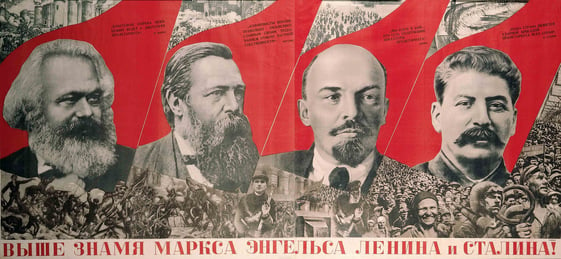
Communist philosophers and leaders (L-R) Karl Marx, Friedrich Engels,
Vladimir Lenin and Joseph Stalin in a 1936 propaganda poster
So it’s just logical that you’re going to get these experiments of extreme upset in the form of extreme anger, right-wing-type anger, and extreme pseudo idealism in the form of socialism, take place, and that’s what happened. And if you ask me, I’d say socialism is the greater evil because it’s dogma, it stops the search for knowledge. At least upset is still supposedly pursuing knowledge. But the horrors of it, six million Jews were murdered by the Nazis and upset.
But as I said when I was talking to you about this [Stefan], in one day we go through all those stages; we wake up in the morning and we’re fresh and idealistic and think all sorts of exciting things and full of energy, but as the day wears on we lose our enthusiasm, and a few battles we have to fight wear us out and we get more aggressive and angry. By the end of the day we’re a bit of a mess, and then we get pissed, have some gin and tonic and flake. So that’s just the progression of the human race in one day. And if you want to take your 5 p.m. self or 10 p.m. self to task and say ‘Listen mate, you’re a monster. I don’t want anything more to do with you’, it doesn’t make much sense, you know it’s the same person. But that’s what’s going on. There are these differences in upset, and at the centre of the battle, as I’ll talk about in a second, are the Arabs in the Middle East; it is just horrendously escalating levels of upset.
Warfare started off ritualised, where you had all these rules, you go out and you agreed you were going to do battle this way and that way. But then after a while the more upset people emerged and they said “Fuck this, we’re not going to muck around, he can play games but I’m just going to go for the jugular, I’m not going to give them any leeway”, no rules at all, so it just went open slather. And in the end things get incredibly upset; because you had the Hittites in the Middle East, which are Aryan stock and they were pretty operational, but then eventually the Assyrians became dominant and they were just totally and utterly ruthless like Genghis Khan. They would destroy a whole city, everybody, kill them all—and they’d even leave soldiers hiding behind bushes and stuff because they knew people would dig a hole in the ground and hide in the ground, and they’d get them when they came out. And not only that, they’d flay them, they’d skin them, skin a lot of them alive and pile the skins on top of each other outside the city walls because it was just a competition of who could get toughest the quickest.
The 40m high Genghis Khan Equestrian Statue in Tsonjin Boldog, Ulaanbaatar
It’s the same thing in every culture you look at. If you look at the Chinese culture there was this escalation and all these different kingdoms emerged, like Greece’s city-states, and they were warring, and to begin with they had ritualised warfare where you had to follow all these rules, and eventually someone said, “Fuck this, we’re not going to muck around”, and they became totally ruthless and dominated and so you see that escalation there.
The Mayan civilisation had the same, if you go and study them, they had city-states at war with each other, and they had all this ritualised warfare, and then they got toughened up and more and more aggressive until it was just outright aggression, and then they finally self-destroyed because there was just so much anger, no-one could live anywhere because there was just so much ruthlessness.
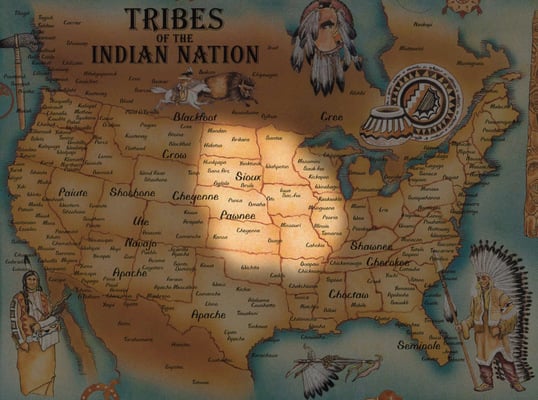
The introduction of the horse in the early 18th century enabled the
Sioux Indians to dominate the Plains in Central USA
And if you look at the Sioux Indians; when the Spanish let those horses go, they spread up across Central North America through the plains, and the Sioux were a tribe living on the edge of the Great Plains. They were smart, they were the first to realise, they could read the play, it’s going to be those who can toughen up the fastest that’s going to win this. And so, they started developing a warrior culture and selecting for toughness and eulogising toughness, the same as the Greeks who would throw weak babies down a cliff and so on. There was a deliberate selection for toughness. And the Spartans went completely ballistic. They would just grab the kids when they’re little and taught them to be warlords, just out-right competition, they were ferocious. Every culture went through these stages and then they would try to civilise it, contain it.
So the Sioux Indians spread out across the plain, because they could see it: “Right, let’s get tough”; they formed a warrior race, they mastered horse riding and they were just dominating all the other tribes on the plains. When the Europeans hit the centre of the Great Plains, the Sioux were already about to take it right over and there’s a quote in FREEDOM about the Sioux, about how they deliberately welded themselves into a warrior race and just conquered all the other races. And then you get beyond that, you get to the point that “Look, this is out of control, we’ve got to civilise, or we will self-destroy”, like the Mayans self-destroyed, so someone’s got to stop the madness. And if you go over to the east coast of America, you had the Iroquois Confederacy, which was a confederacy of tribes on the hills between the Great Lakes and New York.
Map showing distribution of the Iroquois Confederacy in north-eastern USA c.1800s
They formed this Confederacy, and it was created by two prophets and one of them was called The Great Peacemaker [the other was Hiawatha]; they were truth-sayers—because that’s what is needed when the world goes crazy. Every time in the human journey when the human race reaches this point, if there’s not a great clean-thinker that emerges to sort it all out, it does reach an end point and it self-destroys. So these two Indians, these great prophets, emerged and they persuaded everyone to form this Confederacy and they lived by some rules, like the Ten Commandments happened for the whole human race—it did the same thing; Moses appears, says everyone is out of control, we’ve got to create some rules, he goes up the mountain and says “They’re all crazy, I left them alone for five minutes, and they’ve got golden calves and all this other crap they’re going on with”, and he went up on the hill and sat in the cold air and had a good think about it and he scratched these things on the stone, the 10 rules, and said “Just everyone obey these rules so we’ve got some ability to control ourselves.” And that’s what the founders of the Iroquois Confederacy did; they tried to create a civilised society that reined in that upset, but what we’ve got happening in the world now is so much upset that civility is no longer working and the whole thing is polarising. We’re in death-throes, the human race at the moment, it’s that serious.
So, the whole thing escalates, and you get this arms race, and the history of the Middle East is the best example. And that’s the one that’s described in pars. 909-914 of FREEDOM [where the Iroquois Confederacy is also explained]—how the Assyrians in the end were so ruthless, so utterly ruthless, and Genghis Khan was the same, you’ve got to be absolutely 100 percent ruthless to stay on top. If you’re not, someone will get uppity and challenge you and you’re gone. So that in the end they just wiped out whole cities, and Genghis Khan did that too, he moved across Asia and into Eastern Europe and started messing it all up. He nearly got up to where you guys live [pointing to the Austrians in audience]. That was a bit scary [laughter]. And he was just destroying everything, because he knew if you’re not tough enough you’re gone, and he welded the Mongols into one tribe. There were all these fighting tribes and he just had enough ruthlessness to do it; there are stories of him as a little boy about how ruthless he was.
So you can see now that we can admit that we were once innocent and then we became upset, instead of the other way around where we were now ‘trying to manage our upset and our ancestors were all brutish and savages’, which is rubbish, we can talk about this escalation of upset and the effects of that, which is the true story of what happened to the human journey and how we got to these horrific thresholds where upset’s gone out of control.
Anyway, so we reached this end play state of extreme upset and the extraordinary sensitivity of our soul’s been lost because when our mind became preoccupied with upset it lost the ability to take interest in anything else. The pain in our brain stopped us feeling or seeing or engaging in our surroundings. Our brain is distracted from anything else that happens in our world. The more upset that our mind is preoccupied with, either trying to understand it, or if the upset is extreme constantly trying to block it out, the less we can access the events and experiences around us. So we humans become more and more upset. The ability to feel and savour the world around us shrank. Basically our world has shrunk to the size of a pea in terms of what we can feel in the world around us and with virtually no room for empathy for others because we’re so self-preoccupied and trying to validate ourselves. There’s just no room at all.
So if you go back to the guys on the ferry and the barge in the Congo, the ones that are happy and innocent and bouncing around, they can still laugh and feel for each other and look after each other. Whereas the one that’s getting toughened is losing that ability fast. And so that’s been the journey to more and more upset and we essentially become punch-drunk for a win, which is all the ‘universal ruin’ that Plato predicted and the ‘speeds the swift ruin’ that Hesiod predicted. I’ve got a reference to that in Video 4. What Plato and Hesiod are saying is back prior to when we were smart enough and astute enough not to let any truth out. So the further you go back, the more people are sprouting the truth out, not realising how dangerous it is. And then someone like me comes along like me and digs it all up, puts them altogether—Hesiod, Plato, Moses, and builds this case that’s just watertight. That we did have an innocent past, and so here’s Hesiod and his five ages.
‘Golden Age’ from Hesiod’s Works and Days
by William Blake after design by John Flaxman (1817)
The five ages refer to the ‘Golden Age’ of innocence [‘like Gods they lived with calm untroubled mind’], then came the ‘Silver Age’ where there was still some innocence, then the ‘Bronze Age’ where men were tough and war-like, and then the civilised ‘Heroic Age’—see, where you turn negative into positive because we are actually more upset than the ‘Silver Age’ or the ‘Bronze Age’, but were putting a positive spin on it and saying you know it’s a ‘Heroic Age’, which in the overall sense we now know we are getting more and more heroic, but the way they’re using it is deluding themselves they’re superior, civilised, heroic. And then finally to his age, our own age, the completely corrupt ‘Iron Age’ where misery has compounded to the point where Hesiod cries, ‘Oh would that Nature had denied me birth / Midst this fifth race; this iron age of earth / That long before within the grave I lay / Or long hereafter could behold the day! / Corrupt the race, with toils and grief opprest / Nor day nor night can yield a pause of rest / …Speeds the swift ruin which but slow began.’
So Hesiod says the upset is getting worse and worse, ‘swift’, and in the end it’s going flat out, and Plato said exactly the same thing another few hundred years later; he talks about at last after ‘the separation, when the world was let go [when the conscious mind began to challenge the instincts for mastery] at first all proceeded well enough [our intellect mostly deferred to our instincts]; but, as time went on, there was more and more forgetting [alienation, defensive denial and block out]…and at last small was the good, and great was the admixture of evil, and there was a danger of universal ruin to the world’.
So Plato said we started off innocent then became more and more corrupt to the point where we face the ‘universal ruin’ of the world, which is what happened to the Mayans they got more and more upset, more and more ferocious, selected for less and less innocence, no prophet turned up, and so they self-destroyed. And in the case of the human race, we’ve got Moses who created the Ten Commandments, which basically saved the human race and bought us some time. And then the next great prophet to emerge and see that the world was out of control and needed some help was Christ who could see that people needed something to live through more than themselves, bigger than themselves. Living in fear of punishment and having your hands chopped off if you break the Ten Commandments is nowhere near as good as feeling good about yourself, which you could do if you sided with good by supporting the embodiment of the ideals in Christ. So as St Paul described, if the Ten Commandments were considered good, how much better was it to become a Christian. That’s how he sold Christianity. [For St Paul’s quote, see pars. 931-932 of FREEDOM.]
So you’ve got these prophets trying to rein in the upset, and Christianity did, it bought time for the human race. Now everyone hates Christianity because there’s too much emphasis on guilt and no-one can cope with any guilt now; we just want superficial idealism to live for, save the whales or something, and now we’ve got postmodernism which says there’s no such thing as truth and all that crap. Anyway, Plato predicted ‘and at last small was the good, and great was the admixture of evil and there was a danger of universal ruin to the world’. And what did Hesiod say, ‘Speeds the swift ruin which but slow began’. So here we’ve got the truth about ever-increasing upset to a terminal point.
So the Mayans stuffed it. The Sioux Indians hadn’t quite got there yet, they were just on the takeover stage, so they were just wiping out all the competition because they were such a warrior race. They had some great prophets emerge, Crazy Horse was a very great prophet and Sitting Bull wasn’t bad, but Crazy Horse was the outstanding one. No one ever got Crazy Horse to come into the reservations. He was just unbreakable, and had he lived and got a better following he could have created some structure, some rules and stuff that might have saved the Plains Indians. But anyway, over on the east you had some prophets turn up and save them. They formed the Iroquois Confederacy.
And so you look at any culture like that. You look at the Chinese culture or the Indian culture they’re very exhausted. They’ve been in the battle a hell of a long time, because they’re the original civilisations built around the Yellow River and the Yangtze River or the Ganges River, deltas. So they built a civilisation early and went through all these stages the quickest and the earliest. You had Buddhism appear, and Daoism, and Confucianism, which in my reading of it weren’t as clean and as sound a prophets as Christ. In the Middle East you’ve got Muhammad appear and he tries to rein in the upset civilise it, control it.
So the whole story of the human journey is understandable now. No matter who it is. We can explain how the Germanic races were run-over there, and then the Russians, they took up Socialism, they took up bashing everyone’s heads in to try and dominate the world and get a win in a massive way. Out-the-gate madness was going to happen. It’s just like if you want to get pissed off with your 8 p.m-person by your 9 a.m-friendly-fresh-in-the morning-person, then go for it. But it doesn’t make any sense belting-up and hiding in the bushes until your 8 p.m person turns up and then clobbering them for being bad [laughter]. So the ‘universal ruin’ of the world, ‘Speeds the swift ruin’ of the world—it’s all predicted.
So van der Post beautifully described it when he said, ‘This shrill, brittle, self-important life of today is by comparison a graveyard where the living are dead and the dead are alive and talking [through our instinctive self or soul] in the still, small, clear voice of a love and trust in life that we have for the moment lost.’ It’s all built into that wonderful statement.
In terms of our world shrinking to the size of a pea, Olive Schreiner, who’s that great South African writer who wrote The Story of an African Farm, she talked about it, writing that ‘There are only rare times when a man’s soul can see Nature [so long as any preoccupation holds your attention you can’t see nature. It’s only when you’re free of that preoccupation that] Nature…shows herself to you… [and] unfolds you…And the yellow legged bees as they hum make a dreary lyric; and the light on the brown stone wall is a great work of art; and the glitter through the leaves makes the pulse beat’ (p.298 of 300). She said if you go out into nature with any kind of mental preoccupation you won’t see nature. Your mind will be preoccupied. And sure as hell, the human race has been more and more preoccupied with our guilt and shame and getting more defensive and more retaliatory, and can’t see shit or anything around us, and so it does shrink to the size of a pea, that’s no exaggeration. This whole room is how much beauty and magic, if we were super-sensitive, that we could see. What did Dostoevsky say, they could talk to the trees and the trees understood them and everywhere they went everybody loved them: ‘it was as though they were talking with creatures like themselves…and I am convinced that the trees understood them’. I mean how much sensitivity we’ve lost. We’re just down to this [Jeremy indicates a tiny amount], bashing, trying to get a win, super-selfish and preoccupied, basically completely soul-dead and brain-dead. That’s where the human race has arrived at. We want to get the fuck out of there. We want to fix, change all that up. Like on the back of your T-shirt [referring to Stefan], ‘Let’s get the fuck out of here’, with bloody good reason, because everybody is, they’re just down to trying to get a win.
I mean, you watch our behaviour. We were talking about it yesterday, last weekend, everyone’s just watching the TV, watching the Sevens rugby tournament because everyone’s trying to get a win out of some team or competition, but there’s no excitement about the world left, everyone’s just knuckled down, punch drunk for a win, and just preoccupied with that, and our world is just dead, just completely fucking dead. Compared with what we’ve got coming and what our soul is really capable of and all the possibilities now, so that’s what I’m going to go on and talk about. Olive Schreiner said you can’t see nature when you’re preoccupied at all.
So now we have to fall in love. ‘Fall in love’. People say falling in love is the most exotic state I’ve ever been in, you just feel so euphoric. When you fall in love you actually dream of the ideal state that you two are going to share in this magic place. It’s a dream. It’s fall in love. You don’t go into love, you fall in love, you let go of reality and grab hold of ideality and then when you get there you feel so excited and it’s such a euphoric state. People can never forget it, and it doesn’t last long because reality comes rushing in you know [laughter] and the whole thing dies in the bum pretty quickly. But it’s in that word ‘fall’ in love. That’s our dream that we knew that there is this magic state, and when you go there it’s the most euphoric state, the highlight of your life. And the beauty of women, women’s representation of innocence, their representation of our now lost pure world, has been the only form of purity that has been continually cultivated since we were apes [see par. 789 of FREEDOM]. It’s absolutely astonishing just how powerful women’s beauty is. Annie and I drive around the beaches and everyone’s running around in their underwear [laughter] and their underwear is getting briefer and briefer [laughter]. It’s like someone should say “Everyone, don’t you realise, you’re not in your closet anymore, you haven’t put your clothes on yet.” [laughter] They’re all running around in their underwear down there. Shamelessly.
But anyway, that is true—the beauty of women is just unbelievable, the power of it, and you’ve got to ask why? That’s another thing we can finally explain. Nurturing made us human. Nurturing is what created our moral instincts through the love-indoctrination process. That’s explained in Video 4. So what happened with this nurturing is we started to recognise what’s happening, that someone who’s been better nurtured and loved is going to be more cooperative as an adult, and so we started selecting for this and as you get older it wears off, that training in love. So you have a very nurturing situation and then as you grow older you lose that. It wears off, right. They start to regress back to the pre-nurtured, non-loving state. We started to recognise that and favour the more innocent, which is the neotenous features: snub nose, large eyes, baby faced, and so we started selecting; during that nurturing phase, we were actually selecting for that image of innocence, at that stage because it signalled a potentially cooperative person, because the younger they were, the closer they were to the nurturing stage. It was a very powerful influence, a contributing influence to that nurturing, love indoctrination stage in our journey. And then we became upset 2 million years ago and then it suddenly changed, we started searching for innocence to attack, and sex is an attack on the innocence of women. It’s nothing to do with procreation, it’s an attack. It’s our first expression of upset; well, we started hunting animals to get even with innocence, and then we got really offended because women were not empathetic. They weren’t mainframed to the battle. It was men who took up this job of championing the ego, because nurturing was so important. So there is this role differentiation. Again, I’m not allowed to talk about that. But there was, and women aren’t as mainframed as men so they are more ignorant, which was necessary because they had to stay ‘out of the way’ to nurture, to preserve some loving capability within themselves to nurture the next generations. It made sense to let the boys go out and champion the ego and find knowledge basically, suffer becoming upset in the course of finding knowledge. [See chapter 8:11B of FREEDOM for the explanation of men and women under the duress of the human condition.]
But the problem was that left women out of the battle, so they’re sort of naive about why men are so punch-drunk and egocentric. So what men did then was that they turned on the innocence of women and fucked them, ‘fuck’ means to destroy, and what’s being destroyed is women’s innocence, and why?—because it’s unjustly condemning of them. Eventually sex became a huge partnership, a wonderful partnership between men and women, but at base that’s what it’s about. Andrea Dworkin, a feminist writer, admitted that at base ‘All sex is abuse’ (Intercourse, 1987; reported in The Sydney Morning Herald, 25 Jul. 1987; see www.wtmsources.com/172). Sex is about attacking innocence. So the woman’s got to imitate innocence to be ‘attractive’, which is code word for ‘fuckable’. So that’s what sex is all about. So the older a woman gets, the more she loses that innocence which is fuckable, so women now know to make their legs longer by wearing high heels to imitate long, pubescent legs of an innocent 15 year old, and to wear make-up to make their eyes bigger, and long hair to make them look more innocent. Everything is designed to make them appear more innocent. But the amazing thing is that in that whole journey from 5 million years ago when nurturing got under way, to now, all that distance, it was the only form of innocence that was selected the whole way through, because innocent looks, neotenous features, were sought-after because it signalled a more cooperative person when nurturing was the priority, 5 million years to 2 million years ago, and from 2 million years on we searched for innocence because it was attractive for sex. So innocence has been selected for all that time, which is an enormous length of time, which means there’s incredible power in the beauty of women. And as you get more and more punch-drunk you can’t see the world anymore; you can’t see the innocence, the love and beauty of anything, except women. It’s the only last form of innocence left, or beauty that you can access. No wonder it’s powerful. So no wonder the girls are running around in their underwear on the beaches trying to be attractive.
The innocent, child-like, youthful, neotenous
beauty of supermodel Claudia Schiffer
(The Daily Telegraph-Mirror, 1 Nov. 1994)
They’re all bits of evidence of how upset we’ve become, how much our world has shrunk, and how awful that is, because then women are being brutalised horrifically by that. But women weren’t mainframed, they didn’t understand the battle, they didn’t have the empathy that men have got with it, but men couldn’t admit what they were doing all the time. They couldn’t explain the human condition, they couldn’t defend their upset. They were struck dumb. So she gets upset: ‘You’re all a mob of vicious brutes, you’re destroying the planet, you’re evil monsters.’ That’s what feminists are doing out there now. At Trump’s inauguration speech the other day, they were all dressed in white [as a protest against men]. Men couldn’t defend themselves as men, so now they’re being horrifically brutalised and sidelined. And it is true that when men became inoperable, paralysed by the horror of their extreme upset state, women in effect had to take over, so there is a justification for feminism in that sense, but at the end of the day men have got to finish their job and find knowledge, ultimately self-knowledge, which is what this understanding does. This actually fulfils men’s role in the world, which is to find knowledge, which for 2 million years was men’s job. We were matriarchal, nurturing-preoccupied from 5 million years ago, or 8 million years ago to 2 million years—at 2 million years ago it changed to patriarchy, where the priority was to find knowledge, which became the men’s role because it’s an upsetting battle that they have to participate in. They have to suffer becoming massively angry, egocentric and alienated; they have to cash themselves in in the cause of finding this knowledge.
So the whole human race switched from nurturing as the priority when we were developing our instinctive selfless moral soul, and then after that it became patriarchal when the battle and priority became to find knowledge, and so that explains the switch. But now it becomes no gender. This understanding brings about the real achievement of the gender-neutral state, because women now can understand the battle, men have won the battle so they can fucking put down the sword, everyone can come in from the cold. Finally all this ill-treatment of women stops and all the upset in men ends. So this is fabulous.
So that was just a bit about that. So upset’s gone out the gate. That’s the human race.
Part 3 The Individual Journey
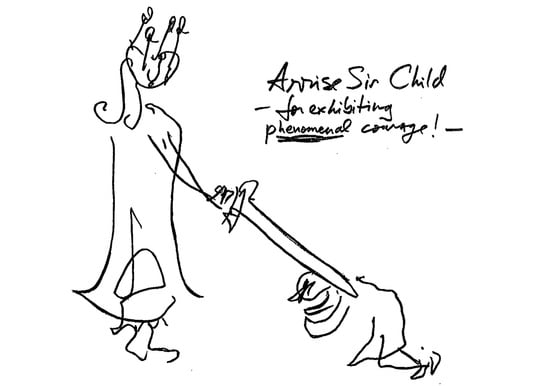
Drawing by J. Griffith © 2011 Fedmex Pty Ltd
Jeremy Griffith’s drawing of a child being knighted for all the phenomenal courage
children have exhibited growing up in the soul-destroying, artificial and silent world of adults
Now I want to talk about the individual journey. That’s a cartoon I’ve done of the Queen knighting a child: ‘Arise Sir Child for exhibiting phenomenal courage’, which will become clear in a minute. I actually like that scribble, because actually it looks like the Queen, she’s only got one eye but it kind of looks like the Queen, don’t you reckon? I really love my style. When I draw I get more of a thrill out of my little drawings than I do out of my writing. Much more. It actually looks like the queen and I went ‘zzzzhhhhhhh’. That’s how good our soul is if you can let it run free.
So now we want to talk about the individual’s journey within the macro journey of the human race. So what is the situation now for an individual human growing up in this overly upset, soul-exhausted, virtually dead world?
We are born with an instinctive self or soul expecting to encounter a nurturing, cooperative, loving, gentle world and then we’re massively shocked and hurt when we discover that it’s nothing like that. And as you’ll see, the worst thing about it is the adults are pretending everything’s okay. So there’s total silence, which is absolutely devastating to a child. So they’re born innocent, and we won’t admit that we had a loving past, so none of this could be talked about. I’m ratting on the bloody human race like you wouldn’t believe with all this stuff. This has got nothing to do with the cave. This is way outside the cave; this [the cave] is crap.
So then we were massively in shock and hurt when the world was nothing like that. Dostoevsky and van der Post said we could feel what the trees could; the sensitivity we had was fabulous and how loving we were, and even now the bonobos ‘love you with such helpless abandon that you love them back. You have to love them back.’ They’re being killed for bush-meat [Jeremy shakes his head in disbelief]. So you’ve got to walk a mile in a child’s shoes.
So we’re now going to do some real therapy on children. We’re going to talk some truth. That’s how innocent they were; they could talk to the striped mouse and the baobab tree, on a good day…no I’m just kidding. But that’s how much sensitivity they have and the world is just an absolute mess and they can see it. They can see how out-the-gate it is. And now this is very interesting, just like the human race, when we became massively angry, egocentric and alienated, we could see what we destroyed in the Garden of Eden and how ashamed we were and distressed by that. It’s the exact parallel. Here’s the child coming into a world that’s gone mad, brutal and vicious, selfish to hell, and no one’s talking about it or even admitting it; in fact, they’re denying it, everyone’s swanning around saying “I’m good, how are you going mate”, telling a joke and children listening to this crap, you know, all this superficial talk is going on and they’re just busy making money, the boys.
So, as I explained in F. Essay 30 on Resignation, at nine children start to get frustrated by the imperfection of the world, they get the ‘naughty nines’, but at about 12 they sober up and they really start to go introverted and think deeply. They actually change schooling, they go from junior school to high school, in recognition that there’s this huge shift because suddenly children go from extroverted and protesting nine year olds, to sober twelve year olds, going deeper and deeper into themselves. They’re trying to make sense of this madness and they quickly realise that the adult world for some reason is lying like bloody hell, they won’t tell them anything; there’s no truth at all. So they go deeper into themselves and they’re dying and dying and dying, trying to face down the human condition and the fact that they can’t survive. And so at about 15 they realise it’s so suicidally depressing trying to face this truth of the horror of the world, that it’s unbearable and they have to give up on that and resign and block it out and decide never to look at that horrible question of the human condition ever again. At which point they become part of the resigned, escapist, dishonest, artificial, superficial adult world where virtually everyone adopts a patently dishonest ‘savage instincts’ excuse for the human condition that I explained in Videos 2 and 14, and spend every minute pretending everything’s okay and on a perpetual hunt for a few relieving, reinforcing, superficial and artificial wins. So they go from being an honest-thinking 12 year old to a fearfully depressed and frayed 15 year old and then they resign and then they become part of the resigned world and then they’re on a bender of self-distraction and everyone’s partying and getting pissed, and that’s got all its stages too.
By 21—not at 20, but 21 (which shows how precise these stages are)—your dad gives you a key to leave home, and your mum gives you a kiss, which signifies that you’ve sort of wrestled with the horror of having to just live a life of dishonesty and just live off a few wins. There’s a few wins out there. There’s romance, there’s the dream of falling in love, there’s the adventure of trying to win as much power, fame, fortune and glory as you can get. There’s a few wins. But it’s a pretty barren wasteland really. But by 21 you’ve kind of blocked out all the negatives and put your shoulder to the wheel and said “Okay, I am ready to go. Give me my shield and sword, Dad” and after a big kiss from mum off you go to carve out and try to advance the human journey a little bit. So from 15 you go through all these stages, you get pissed and write yourself off, and you’re resisting trying to accept Resignation, the consequence of Resignation, of knowing you’re going to be a fraud. As soon as you block out the truth of our innocent soul and all that, you’re flying blind and you can’t think straight at all.
So it’s a horrible decision to make to resign which is why some people didn’t resign like Stefan here. What happens with people that don’t resign we call them ‘Ships at Sea’, they’re rare people who’d rather stay ‘out at sea’ and suffer the storms, which is the confronting issue of the human condition, than pull into a port and hide, resign. And they read my stuff and love it and can just soak it all up. They read my books, and this is not an exaggeration, how long did it take, about three days or something, you guys do it, don’t you. It’s just amazing. And so Stefan is a ‘Ship at Sea’ and loves this stuff and he got these other close friends interested because he can see the truth of this, so he’s not deaf to this, whereas the resigned brain is deaf to it, but he’s not, so he’s got an open slather, this stuff just ‘whhhhhsss’ [Jeremy indicating how easily Stefan’s brain can digest this]. We get them weekly now, ‘Ships at Sea’ showing up, and you read their stuff, they’re just absolutely over the moon with excitement. They cannot believe it. They go on and on and on about how this saved their life and they never saw anything like this. [Read more about ‘Ships at Sea’ in F. Essay 30 & F. Essay 60.]
Louis is this 40 year old. I think his father’s a famous artist in Belgium, anyway, he’s living in Spain. Now Louis is a ‘Ship at Sea’, there’s no doubt about it. He’s only shown up one week ago or something and Louis is just absolutely excited with this. This is what happens with a ‘Ship at Sea’ because you’re still not understanding why the world’s gone crazy, because once you resign you’re part of the problem, you’re part of the resigned world. It’s self-evident what everyone’s doing because you know why you behave like a dickhead and you’re after a win [laughter]. But if you’re not resigned it’s still a huge mystery. I mean Olof will be listening on the phone in Sweden to this and because he went through all of this, Olof got to such a stage, at 21 or 22, when he was living at a university in Sweden and he had a flatmate or a roommate that got into pseudo idealism and was going down to the G8 conference and was going to protest about that and Olof could see that was just crap, his flatmate was just deluding himself and using it as a win to feel good about himself and it was just fake, fake, fake—because if you’re unresigned you’ve got an immaculate shit-detector, you can see the dishonest crap. So Olof didn’t want anything to do with that, that dishonest, deluded world of pseudo idealism. He’s still absolutely allergic to it. Is that right, Olof?
Olof: Yes, that’s right Jeremy. When you said that socialism is worst of the two before, I was just feeling relief in my whole body hearing that. Yeah, it’s right.
Jeremy: You don’t want to mess with these guys who are ‘Ships at Sea’ because they’re all little prophets. They’re all truth-sayers and you can hear it in what he just told you. Because Olof said, “When you said, Jeremy, about, you know, extreme right-wing or extreme left-wing, which is the greater evil, that it’s actually the delusion of the extreme left-wing, pseudo idealism.” Olof really identified it, you could hear it in his voice right then. He said, that really rushed him with relief. See, they can see through the madness, whereas once you resign you can’t see crap, you can’t say anything.
So I’ll tell you Stefan’s story, it’s a really good one. So Stefan’s a ‘Ship at Sea’, which means you’re going to get more and more out of sync with those around you, your age groups and stuff because they’re resigned and they’re on a bender, self-distraction and stuff. You can sink piss [drink alcohol] with them as well as they can and stuff like that, but you’re actually faking it to try to sort of get along with them. Your brain is totally preoccupied still with trying to understand why the world’s gone crazy and they’re now living in denial of it, so they’re pretending everything is fine—“What’s troubling you, Stefan?” Anyway there’s this really funny video of Stefan. This is before he came across this information. He’d been invited to give a presentation. What was it? It looked like a lecture theatre or something.
Stefan: It was called Creative Mornings and it was supposed to be a presentation about work and about simplicity and so on and so on [laughter].
Jeremy: Anyway, so this is what happens. You can watch it on the video. Stefan starts out trying to go along with what he’s supposed to talk about and then he starts going off on this absolute bender [audience laughs] which loses everyone in the room. He’s got this absolute obsession with this story of this elephant. It’s a circus elephant that’s tethered by a rope, but quite clearly it’s strong enough to break the rope, rip the peg out of the ground, but it doesn’t do it. Now this is such an important story for Stefan because it encapsulates the whole problem he’s got. Why is everybody so stultified and stalled and stymied and why can’t they break free, what’s locking them all up, what’s going on? He doesn’t know about Resignation and this is sort of the perfect metaphor for this mad world that for some reason won’t pull the stake out of the ground and start living. So Stefan starts and he gets more and more animated and he’s telling everyone about this bloody elephant and you could see people in the audience looking confused [laughter]—it’s got no relationship to what he’s supposed to be talking about, but it’s so important to Stefan and he’s going on and on about this elephant and he’s lost everyone, but for him it’s so important.
Annie: He gets quite emotional about it too.
Sus: What about aliens? He thought we were all aliens and he looked up FREEDOM to see.
Jeremy: Go on tell us Stefan.
Stefan: I think it was the year before I came across FREEDOM where I was really wondering what’s wrong with everyone and why. I had no awareness about my own situation, but I was just worried about the world and couldn’t understand why everything’s so strange. So I came across different theories over the years and at one point there was this theory that there are some mind-controlling aliens and I thought, oh well it makes perfect sense; that will explain why everyone’s so strange, because it’s so strange. [laughter]
Jeremy: You can see how troubled was he by the madness to think finally it has to be aliens.
Stefan: I mean I knew it couldn’t be really true, but I couldn’t really talk about it with anyone. I was talking about with Gerald and Sophie at one point when we got to know each other and I thought they should probably be aware of all of this…[audience laughs].
Jeremy: He believes in aliens!
Stefan: Well, I’d better not talk about it [audience and J laughing].
Jeremy: Anyway, so this is this guy that’s shown up in the last week, Louis, he’s 40. His father is this famous artist from Belgium but he is clearly a ‘Ship at Sea’ and totally perplexed by, still perplexed by, this resigned, mad, adult world, which has led him to a sort of paranoia that it’s all mad and crap. So what he did is he went to Spain, up in the mountains, and dug this huge bloody tunnel and buried in it 8000 books—all the great works. He put them in a capsule inside this burrow so that at least there would be some truths in the future that would survive.
I actually remember when I was at Geelong Grammar School and you’re supposed to be doing maths, etc, but I started building this book, which was trying to collect all information, had all headings and breaking it up. It was my early attempt to try to order everything, make sense of everything, so I can really identify with Louis. If you think about it, in America you’ve got all these ‘doom-dayers’, but for Louis it’s nothing like a doomsday/end of the world, well in a way it is, but it’s about him trying to make sense of the world and get some sense and put it in a capsule and hold it in the face of all this madness. Anyway, so Louis is on this absolutely bender, but he’s a great doer, he’s got all these people that follow him. He lent his house to some refugees from Patagonia and the house burnt down when they were there, or they burnt it down or something. Anyway, he went and got some money from some organisation within the United Nations or something and they gave him $20,000 to rebuild it all. He’s a go-getter, he does all these things, he’s got a huge following. Anyway, he just wrote to us. You read any of this stuff in the last update that went out yesterday, just soaked with relief finally. Louis said, this is the only book I need to put in that vault now.
Sus: He collected all the books that are referenced in FREEDOM. All those books that you reference in FREEDOM are in his library, but he said you can throw them all out, I just have one now.
Jeremy: No, he already had all those books that are referenced, he already knew.
Sus: Yeah, he knew and he’d collected all the books that you’ve referenced like you’ve seen, got van der Post, got Heinberg, got all of them but now he can throw them all out for this one book.
Jeremy: He didn’t do that after FREEDOM, he just happened to have found those books. Because he’s got this unerring shit-detector in his head too, because he’s not resigned. So he’s out there, 40, he’s still full of enthusiasm and got all his dreams and everything and wants to do this because he’s still alive.
So basically each individual follows the same journey the human race went on, from innocence to upset and then feeling bad and guilty about having become so corrupted we take up a truth-blocking-out, escapist, alienated, materialistic, artificial, effectively soul dead and intellect dead, psychotic and neurotic existence and become like every other mad, fiercely competitive, escapist, superficial and artificial resigned adult. So we sign on to the mad-heap. Then eventually when upset becomes extreme in society, that’s where it all sort of ends. When it gets extremely upset, there are three particular varieties of upset that take humans into that part of the graph [see below] charting the ever-increasing upset to where it goes into freefall; basically to where levels of upset are almost doubling every generation, which is the ‘universal ruin’ stage that Plato predicted or ‘speeds the swift ruin’ stage that Hesiod predicted in Video/F. Essay 4. So once the human race gets to this extreme state in society then there’s three things that really cause the graph of increasing upset to get worse and worse and worse. (It’s one of those sorts of graphs. What do you call these sorts of graphs? [In the audience Jοhn Bіggs prompts ‘exponential’.] So, yeah, one of them. It’s an exponential graph. That’s pretty impressive, but Biggsy had to tell me. So, it’s an exponential graph. I’ll remember that … exponential [laughs].) Anyway, so it eventually goes into freefall, with basically alienation doubling every generation—that’s where it arrives.
That’s why the millennials are just completely exhausted. I would say the Germans are still sort of operational, they’re very functional and apply themselves with diligence. Whereas those inner races from around the Mediterranean are really exhausted. But Gerald’s saying, “But Jeremy, even in Germany now the younger people just don’t want to do that anymore and they can’t apply themselves like the Germans are renowned for.” Anyway, wherever you go the millennials, you know, the ‘snowflakes’ are just in effect saying “enough is enough” and that’s where you get this ‘universal ruin’ stage where the graph is going into freefall and it’s doubling every generation. And that’s how serious that our plight is. These understandings have got to get out there and quickly. We have to keep our head when all around us is scared to death that we won’t get this out in time. But we have to stay calm and just keep doing it and carefully getting there and just pray that we will get it out there in time to save the world, because nothing else will—all these fucking pseudo idealistic things do nothing, they’re just killing us [to read more about the danger of pseudo idealism, see F. Essay 35, an essay that is so significant it has also been produced as the standalone book titled Death by Dogma: The biological reason why the Left is leading us to extinction, and the solution, which can be accessed for free on our homepage www.humancondition.com, as one of the WTM’s key books].
So now I want to talk about the three particular forms of upset, expressions of upset, that really make the increase in alienation from one generation to the next really compound very rapidly.
So, the first one is that the upset or alienation in mothers is so great they are unable to nurture their children with unconditional love; the psychologist Bruno Bettelheim named them ‘Refrigerator Mothers’, which got absolutely panned at the time. Harry knows all about that, and Harry’s met a lot of these blokes. Yeah, this is the time that Christ described when ‘love of most will grow cold’. [See par. 1126 of FREEDOM on Christ’s prediction of this time, and par. 971 of chapter 8:16C on Bettelheim.] [Holding up a copy of FREEDOM Jeremy shows that he has made “a lot of little additions have gone in the new edition of FREEDOM, only little ones. Basically we did a really good job. It’s really complete, but they’re all little additions that are going up on the new version that will be going up in a week or two.”]
Anyway, so now I want to talk about ‘Refrigerator Mothers’. This is a recent mother’s honesty about it [reading from FREEDOM]: ‘When my baby was first born, I didn’t experience a rush of love at first sight that so many new mums talk about, in fact for the first three weeks of his life I was overwhelmed by it and what his presence meant. I looked at him and thought, who are you? He was like a little imposter in our house. I didn’t know him. I couldn’t tell what he meant. I felt hugely guilty.’ That whole chapter 8:16C of FREEDOM, The dire consequence of terminal levels of alienation destroying our ability to nurture our children, is devastating. In the extreme, the child has to block it all out to protect themselves; in extreme cases you get ADHD, Attention Deficit Hyperactivity Disorder, and then in even more extreme cases, autism, where they completely dissociate to cope with the horror of the pain in their brain—as described in FREEDOM in par. 969, ‘autism is highly sophisticated’. This is a famous book, Thinking About Children, by former president of the British Psychoanalytical Society, psychiatrist and paediatrician, D. W. Winnicott: ‘Autism is a highly sophisticated defence organization. What we see is invulnerability [p.220] …The child carries round the (lost) memory of unthinkable anxiety, and the illness is a complex mental structure insuring against recurrence of the conditions of the unthinkable anxiety [that results from the mother’s failure to provide her full attention] [p.221].’
So, if you stand back and think about it, the human race is becoming more and more upset—really, really seriously upset. And in the case of mothers it’s going to have a diabolical effect because they’re going to become hugely alienated, hurt and they’re not going to have the original nurturing capability of our original innocent instinctive self and they can’t relate to the child; you get this sort of ‘Refrigerator Mother’, as it’s called, and you get this sophisticated defence organisation from the child. What we see is ‘invulnerability’, the child carries around a lost memory of unthinkable anxiety because the conclusion that the child makes, as I’m going to go on and talk about, is horrendous—that they are evil, unlovable, unworthy. That’s the consequences. Now, you’ve just got to try to walk a mile in this situation: it’s horrendous. We get mothers who’ve got autistic children and some of them you can tell, they’re really secure, relatively secure, able women and they’re trying mightily to cope with it, but struggling enormously because it’s so condemning of them, well they feel it is. I’d have to get them and talk to them for hours about how the whole human race has reached that state, you can’t blame yourself, it’s part of the whole human journey here. There’s no honesty out there. So I’ve got to educate them about the whole honest journey of the human race before they can begin to cope, because they haven’t got any honest context to why they’re weren’t able to love with unconditional love. So you’ve got to watch the Bushmen, you know [to get some sense of how much innocence the human race has lost].
There’s a really good cameo of Harry Prosen in Video/F. Essay 7; he’s standing in front of the bonobo enclosure at the Milwaukee County Zoo. James Press is filming him and Harry’s talking about the bonobos (who he’s had a lot to do with) behind him, and he’s talking about FREEDOM and how much he loves FREEDOM. Pressy [James Press] was just filming and it was very lucky because Harry organised that they brought all the female bonobos with young out into the enclosure for that day. They hadn’t done it before, that’s how much they think of Harry. And, anyway, it was great. We had all the females there and Pressy filmed it. You’ll see there’s a little bit of footage of the mother looking after its little infant and looking into its face with such love and intimacy.
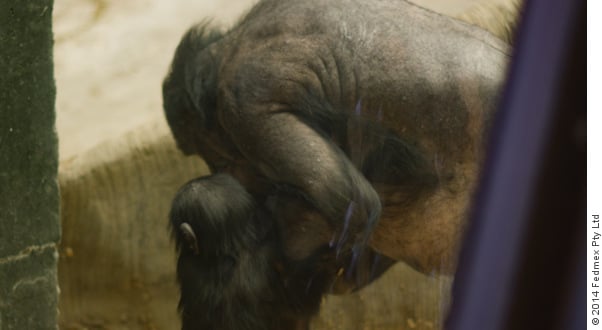
A still from footage of a beautiful interaction between a bonobo mother and infant
at the Milwaukee County Zoo, USA
So that’s in the filming: Harry’s talking away and there’s this bit of footage of this mother and just how loving they are and empathetic with their infant and you can imagine after 2 million years what the upset, all the men fucking women, and the hurt and madness of the world—unbearable—and of course their soul is in a mess and of course they’re going to find it almost impossible to access unconditional feelings of love toward their infant and they’re going to feel terrible. But the effects on the infant—the next generation is going to be hugely brutalised because the infant can’t cope with that. That’s what I’m going to now talk about, what happens to the infant’s brain, and it’s in all our brains what I’m going to talk about, because the effects are catastrophic.
Within [Australian] Aboriginal society all observers agree upon the extraordinary tenderness with which parents display towards their children, and indeed to all children, whether their own family and race or not. And in the case of the Bushmen of the Kalahari: ‘Their love of children, both their own and that of other people, is one of the most noticeable things about the Bushman’ (‘Tribes of the Kalahari Desert’; see www.wtmsources.com/103). The ‘Bushmen…mother carries her child with her at all times up to four years of age’ (Virginia Abernethy, Population Pressure and Cultural Adjustment, 2005, p.34 of 189). ‘Children are breast-fed for up to 3½ years, and among the Bushmen lactation suppresses ovulation’ (G.N. Bailey, Hunter-gatherer economy in prehistory: a European perspective, 1983, p.114 of 247). And ‘!Kung [Bushmen]…infants hardly ever cry.’ (Dr Harvey Karp, ‘Cultures without Colic: Breastfeeding & Other Baby Lessons from the !Kung San’; see www.wtmsources.com/117).
Anyway, they’re all drugged now with alcohol and it’s a terrible story. But they can still nurture. We’ve got Polly. Polly’s a brilliant nurse and she’s involved with mothers having babies and she’s seeing how these Islander women from Polynesia, from Samoa, and how well they are able to access their babies.
Polly: Yeah, I suppose it’s just much more natural, they’re just naturally holding their babies and sort of responding to their needs so naturally, whereas a lot of other women are just miles away.
Jeremy: Yep, so this is one of the devastating consequences of increased levels of alienation to the point we’ve now reached. And mothers need a lot of talking to, to help them context it, because there’s been so much denial. They have to be told just how exhausted the human race is. They have to be read Dostoevsky’s description of how innocent we once were, and then we have to talk about this heroic journey the human race has been on: “Can’t you imagine what it’s done to us all? Of course all mothers can’t access their children with unconditional love anymore. It’s not your fault. You’re part of the human journey and you can transcend that pain and that guilt and live for the truth of this and through that stop this happening to other children forever more.” And they can be told how to get transformed and how to cope with the truth, because that’s an example of how the truth’s unbearable. So nurturing is hugely compromised, and the consequences of that we’ll talk about in a minute.
And the other particularly destructive form of extreme upset is that in the case of fathers, they become excessively egocentric power addicts and there’s a whole chapter about that in chapter 8:16D of FREEDOM, especially par. 1003, about how eventually men become just absolutely desperate for reinforcement and for a win and can’t accept any criticism or negative thoughts; they’re incapable of empathy. The whole power addict state is horrendous and narcissism in the extreme. The chapter cites an article by the journalist Miranda Devine, truthfully titled ‘Face it, we are all narcissists now’, which talks about ‘preoccupation with fantasies of unlimited success, power, brilliance…a need for excessive admiration; a sense of entitlement; exploitive personal relationships; a lack of empathy; envy and arrogant, haughty behaviour…Everyone’s a potential narcissist these days’ (The Sydney Morning Herald, 3 Sep. 2009). The article mentioned the ‘long-term study of…American college students [that found]…the incidence of narcissistic personality traits increased on a scale rivalling obesity’.
This is a picture I’ve drawn of the power addict situation. It shows a father that’s really desperate for reinforcement. He’s got no room for children at all and the devastating consequences of that cripples the child. You’ve got the “Embattled, ‘you-have-to-prove-yourself’ parent”—it’s my way or the highway—the “Child trying to resist that it is unworthy of love”, and then the worst state, “The child is turned into either a ‘I-won’t-back-down’, ‘must-win’ power addict, or a psychologically crippled, broken person as an adult”, which is totally busted and still fighting and so that’s the origin of the power addict state. That child will become a power addict because the parents are a power addict, because they don’t receive this reinforcement and all they are told is they’re not good enough.
Annie and I had this dog call Maxy and this job of mine has been so incredibly exhausting and preoccupying that I was like a monster to Maxy because, I could remember, he was an irritant in my life. I couldn’t give Maxy the attention and I was just nasty to him and he was an irritation and so in that experience I can extrapolate and work out how hard it is for fathers. One of the luckiest things I had was my father, he was very like my brother Simon. My father had tremendous kindness and patience and that was good, so I didn’t have an authoritarian, overbearing father but one that was strong, but he never imposed himself on others. He was sort of saintly and that played a huge role. Obviously the biggest role was a nurturing mother.
Jill and Norman Griffith at their property in Mumbil
in Central Western New South Wales in 1959
It’s no coincidence that they revere Christ’s mother, the Virgin Mary, ‘virgin’ symbolising that she is innocent, un-fucked—that’s the main way women are soul-destroyed. So she was extraordinarily innocent and that produced an extraordinarily innocent child, and that’s how I was able to avoid Resignation—all this truth has come from my mother’s nurturing and a father that wasn’t at all imposing, oppressive, like I was to Maxy and I turned Maxy into a bit of a mess.
So this power addict state is horrendous. The reason the Arab Spring didn’t work is because in those countries it’s so messed-up; like when we were talking earlier about Syria being where they flayed whole populations and killed everybody in them, they were absolutely ruthless. That chapter 8:15 in FREEDOM about what happened in the history of the Middle East is horrendous to read. You start with the Hittites and they were relatively innocent and then more and more ruthless races appeared, until you get the Assyrians and they were just totally, 100 percent ruthless. The result of that was this great cauldron of ferocity, the Middle East, and it killed off the soul; it just wiped it out. And so what happens you get a civilisation where there’s just too much of the power addict state, too much embattled state, there’s no generosity anymore. Anybody who makes some money they won’t share it, they become more and more greedy, more and more cynical, and they don’t trust in human goodness and so everything shuts up and the whole thing founders.
Driving along with Franklin here in Sydney [Franklin Mukakanga is from Zambia where he has set up a WTM Centre] there was a road sign that had been damaged by a truck, and Franklin said in Lusaka, Africa, that would be left there and never get fixed, but in Australia it gets fixed. And I said, that’s the problem with more innocent races, like the Africans, they can’t compete with the more disciplined 30-year-old-equivalent, the operational colonising British where there’s still enough selflessness and generosity for them to be operational. And beyond that to the embattled 50-year-old-equivalent races where you would no longer have that in society; when you look at the Middle East now it’s just one big, bombed-out warzone, because basically, at the bottom of it all, everyone that’s born there is a power addict, they’re too upset, and there’s no longer any selflessness at all and it’s just endgame.
As it said in that newspaper article about power addicts, they’ve got no empathy. You talk to psychotherapists who try to repair power addicts—what power addicts do is they go along to the therapy and they listen to what’s being told and then they go and imitate it. So they disguise their power addict state, they pretend to be empathetic. But you know it’s really hard for them. So many people need the Transformed State, you know, that’s a really tough one, when the men get so embattled and the women-folk are sort of oppressed and walk on eggshells because they are just so desperate for validation all the time. So that’s horrific. That’s when the fathers get to that state of extreme upset, and the mothers get to that state; and then of course there’s the third destructive expression of upset, which is the sexual abuse that’s going on, the out of control molestation of children and the consequences of that.
So now I want to look at how this ill-treatment—ill-treatment in a sense because it’s actually real treatment in terms of the human journey; we had to march into hell for a heavenly cause; we had to suffer becoming upset. So upset was an unavoidable part of the journey, so it’s not a bad, evil state. It’s just what happens.
So we’ve talked about the three particular extreme expressions of upset and I now want to talk about the effect—of what happens in children’s minds now that we can be honest about that our species once lived cooperatively and lovingly and we can therefore realise that children come into the world expecting it to be like that and it’s not like that and worse: the adult world is full of adults who are resigned, living in denial of the human condition, so they’re pretending there’s nothing wrong and so there is effective silence, and we talked about Stefan and his situation, and Olof, and Louis, and how much they have struggled, and they’re sort of adults, so for young children it’s really hard.
So this is what happens to the minds of children. What is so destructive about this extreme state of upset and the silence slash denial from the adult world about the extremely upset state of the human condition, is the psychological effect it has on children. The problem for children is that they can’t help blaming themselves for the lack of love from their mother and or father and or others in the case of sexual abuse. Children are so naïve, they are born so instinctively unaware of the existence of the upset state of the human condition, that they can’t believe it is the adult’s fault. They are so trusting, so co-dependent, which means incapable of independent thought, that they can only presume it’s their fault they can only believe that there must be something wrong with them, that they have done something wrong. They are so trusting of the adult world, so believe in the adult world is a loving and honest world, that in all their innocent, soulful, trusting honesty, they can only conclude that they must deserve the ill-treatment or that they caused it, that they are to blame. Yeah, that’s how innocent our soul is. How much we instinctively believe in a loving world our species grew up in.
So what happens to a child is they blame themselves, again because we come from this innocent, co-operative, loving existence. So you have to try to immerse ourselves in the child’s situation. It’s expecting the world to be co-operative and loving, and believing all parents are cooperative and loving and that’s the way everyone is. So when things go wrong it’s not in them to see the blame in those parents because they’re looking to them as being the epitome of goodness and so their brain eventually decides it has to be their fault. And once they decide it’s their fault, again they’re incredibly innocent, right, the consequences of blaming themselves are horrendous because again, they’re very honest they’re innocent, they’re very honest. Once they blame themselves, that’s just excruciating; that they decide that they’re evil, that they must be bad. For such a trusting mind and an innocent mind to believe that, to decide that you are an evil person and you shouldn’t exist, is the most horrendous conclusion that little child’s mind can come to, that young person’s mind can come to. So this absolutely devastating conclusion that children all too easily come to, that they are bad, even dreadful, evil beings, either hurts them so deeply that they block all the pain of it out of their mind and become a psychologically detached, immensely alienated, crippled person, a sufferer of Attention Deficit Hyperactivity Disorder, and even autism, or they try desperately to prove they aren’t bad or worthless and spend the rest of their lives obsessed with the need for reinforcement, which is the origin of the desperate, desperately in need of reinforcement power addict state, which is that drawing I did of the father and stuff.
So you can see now how important it is that we can finally admit how innocent the human race once was. We can at last understand and admit and explain to children, and to the unresolved distressed child in adults as well, why and how children can blame themselves and suffer such extreme feelings of guilt and badness and become psychologically crippled, because you’ve to got to remember again, they’re very innocent and trusting, so if they decide they’re evil and awful and they shouldn’t exist, that is just an unbearable conclusion. And you’ve got to remember they’re honest, they can’t allow themselves to deny it. Once you know a little bit about the human condition, the world’s imperfect, you can sort of bear it a little bit. But if you’re very innocent, as the child is, and you conclude that you’re awful, shouldn’t exist, then that is unbearable to cope with. You’ve got no ability to cope with that. So that’s why they have to split-off completely, because once you get to that conclusion, that is unliveable with, so you have to separate yourself from that. It’s like what happens at Resignation, this is sort of Resignation as a consequence of lack of experience. So all children suffer variously from this sense of guilt and bewilderment and they’re total victims to our silence, is what in effect happens.
My most-used phrase as a young man was ‘self-evident’. That it’s self-evident what’s happening in the world. Like you [referring to Stefan] were frustrated about your elephant, and Olof about the pseudo idealism. It was just this silence, this denial. It was, “Why is the world so?”, and I got to this point where I said, “Okay well I can see that now everyone is silent because for them it’s self-evident why they’re living in silence.” You know, I can understand clearly about Resignation now and all that, so this word, ‘self-evident’—the reason they’re silent and don’t say anything is because to them it’s self-evident. They don’t need to talk about it amongst themselves. It’s a bit like your aliens, Stefan. It’s sort of something that helped me cope with the silence, but it was a huge issue for me, as I said it’s the most common thing in my earliest writing that it is self-evident to adults why they are silent and why everyone’s dishonest and carry on, but it’s not to an innocent. So I’m absolutely saying, “You don’t know the damage you’re causing with your silence. Okay, it’s self-evident, you don’t have to say anything, but I’m telling you it’s incredibly painful, the silence you’re practicing, denial in effect.” I mean if they could talk about it they would say, “Yeah, but you want to know what living with the human condition is like, it’s unbearable, that’s why we’re silent, mate, we can’t deal with it. Talk about 2 million years of living undefended, you know, how heroic are we. Of course we’re bloody silent. What do you want? Stick your self-evident theory up your jumper.”
So children are so trusting and it’s just difficult to immerse yourself in how vulnerable they are because they’re so trusting, right. First of all to blame themselves, which is ridiculous. We’ve got members of our organisation who have lived with all these different forms of upset and we’ve had to help them with understanding of that. And where they’re abused as children, what happens is they actually start to think that for some reason they brought it on themselves, that they’re to blame, which for an adult world that’s familiar with the human condition, it’s “How the bloody hell did you think that?” You think that they’re not at fault at all. That’s what happens. That’s how innocent children are. That’s the first thing to realise, just how innocent they are, and therefore how they can blame themselves, when it seems a ridiculous conclusion to come to, but they do. And then the second thing to realise is as a result of that innocence and vulnerability is how completely trusting they are, and they can’t believe that what they’re thinking isn’t the truth. So they actually force themselves to believe it, to face it, because they’re trusting, they’re honest. Once you resign and you’re ducking and weaving all day long, you’re a master of lying, you know, but when you’re unresigned and you’re a child, you haven’t mastered lying at all, you don’t know about dodging truth. If your brain says that led to that led to that, that’s why I’m at fault, then you’re so trusting, you say “I have to believe that; I can’t escape that truth, because it’s true, because I don’t lie.” Although they don’t know they don’t lie, they’re just truthful at that stage. Then they make that conclusion—as Winnicott said, they’re coping with ‘unthinkable anxiety’ and so they separate themselves off; they become invulnerable: ‘Autism is a highly sophisticated defence organization. What we see is invulnerability [p.220] …The child carries round the (lost) memory of unthinkable anxiety [that’s the unthinkable anxiety, to conclude you’re evil], and the illness is a complex mental structure insuring against recurrence of the conditions of the unthinkable anxiety [that results from the mother’s failure to provide her full attention] [p.221].’
So yeah, you split off; it’s extreme blockout or denial. You cut right off. They can’t cope with that. It’s just unbearable. And I’m saying that happens to all children to varying degrees, and obviously the victims of these extreme states of upset causes huge damage because of that vulnerability. But you’ve got to go back to the macro here because, what do parents do, not have children? If you knew about all this, you know, you’d be terrified of having a child. But then no one would have had children, and we wouldn’t have got here. So that’s not a solution either. They had to be brave to be a parent, that’s what it boils down to; you had to try your best and do your best and that’s what parents do. They try to love their child, they try to disguise their alienation. I mean it’s very salient to watch a mother in the park, knowing everything, knowing all this, because you can see them really trying to give that child attention and you can sense yourself—shit, if I was there trying to do what she’s doing I’d be out of my wits, I’d be impatient by now—but they sit there with the child and they change this and that and they talk to them and the child says whatever, and they talk back and they try to treat them properly and say, “Well the reason the dog slipped on the bank wasn’t its fault.” I don’t know, they just keep talking to the child. It’s marvellous to watch and you know what they’re doing—they’re trying desperately to be stronger than their frustrations and they spend hours there with their children. You think: how did they do that? You can see them taking prams around and you know they’re working really hard at it. Given the plight of more mothers now, it’s a bloody heroic performance. Nevertheless, it’s really, really hard, you know, for the infant and for the mother.
But the same goes for fathers. I haven’t got children because I know I can’t give them the attention they would require, given the application I have to give to this job. So we don’t have children on this project because we’re here, because we haven’t had the opportunity; we know we’re the founding group, we’re going to have bugger-all spare time—and it’s true, we wouldn’t have been able to do what we’ve done if we had to try to look after children. In fact, all the children in the world are our children really, we’re trying to nurture all children, the whole of the human race’s children. So it’s not like we haven’t got children, we’ve got a truck load of them [laughter]. Trying to battle the human condition and carry on that job and at the same time being a nurturer is completely impossible. So it will be very interesting, you know, what will happen after this because mothers will get together and they’ll need this discussion to context it properly so they’re not guilt-ridden and they’ll need help, and since the blokes have won their battle they can ‘come home and put the sword down’ and be more nurturing and supportive. And so that’s the way it will all subside and there will be more room in society and in parents and everything will start to fix up. But I’m talking about when there was no bridging understanding about what’s been going on.
So, as I said earlier, you can see now how important it is that we can finally admit how innocent the human race once was. We can at last understand and admit and explain to children, and this is a very important sentence, and to the unresolved distressed child in adults, why and how children can blame themselves and suffer such extreme feelings of guilt and badness and become psychologically crippled and totally detached from their true self. Because, and this is really important, obviously, the thing is the child has the first access to the brain and it actually has access for a good while there—like how long are you a child? I don’t know, 10, 15, you’re still a young person. So in all that time the adult couldn’t get in there and intervene and so say, “Jesus, look the world isn’t perfect, wasn’t meant to be perfect, you know, it’s all right, you know, don’t fall for all this rubbish that you’re at fault.” There’s no mediation at all. So the child’s state of thinking has first access to the human brain, to our human’s brain, and it’s totally vulnerable to all this misreading and it makes all these total terrifyingly wrong conclusions that it’s evil. It splits off from itself, and becomes extremely psychotic and neurotic, right, and then finally this is before we had understanding, finally at 15, 16, 17, it does become self-evident, you’ve started to become aware, if you’re an adult, aware of the human condition, you’re not as expecting of it to be perfect, you have a bridging understanding, at least you know that the world wasn’t meant to be perfect, so you’re more tolerant of the imperfections of the world. But the problem is, and this is key, that you’ve got there too late, the child’s already got its madness in place. So the reality for adults is that they’ve got this traumatised child still there and it’s been buried because it couldn’t, we couldn’t cope—just like Maxy, he was an irritation, so I pushed him away. I couldn’t nurture him, he was just an irritant, and children are an irritant. Back in the Victorian age they’ve got to be ‘seen and not heard’, I mean, what was that going to do to children? I don’t know what they did with children then—we’re an anti-child society because we’re so embattled, egocentric and preoccupied with our own battle, we have no room for children at all, they have to sort of fit in. You see them down the street, they’ve got no room to play outside their house, their places. It’s like the song Where Do The Children Play, by Cat Stevens, just tar and cement.
So the whole thing’s an absolute nightmare, but there are nightmares wherever you like to look, now that we’re going to get in there and start being honest. I’m only just scratching the surface about what’s been going on. So, that’s the thing, a child has first access to the brain, then later on the adult comes along but it’s a bit too late. There’s 10, 15 years of habituated block-out, of psychosis and neurosis, already well and truly entrenched and habituated. So this adult now, if it could talk, it says, “Now listen, I understand about the human condition and even before we had this understanding, this actual understanding, at least we knew about it from having experienced it. Through my experience I can come and help you now, you don’t have to believe all this crap in your head that you’re evil and God knows what, and make all these wrong conclusions and block out and split off, you know.” But in effect the child in that person is still hugely embedded and in place. So you’re knocking at a door that’s well and truly locked, “You’re a bit late, Johnny, to come in here and try and help us”, and as I said, it’s all an irritation anyway. We cope with our psychosis by just blocking it out. We’ve blocked the child out, then when the child becomes hurt and mad, then we block that out too because there is no room for that; we’ve got to get on and make money and whatever else we’ve got to do. So, the whole thing just escalates into absolute mad heap. But you see now with understanding of the human condition we can fix all that. We can go back and talk to the child. If I could go back and get Maxy and sit him down and say, “Listen, mate, I’m fucking sorry, mate. I was very busy, we suffer from the human condition us humans and I’ve been very busy with that and I just didn’t have any room for you, mate, and shit I’m sorry I was so irritable and messed you up completely, you know”, and Max, if you could talk, if you can think, you could say “Well, yeah, that all makes sense. I can sort of cope with that now I understand what the fuck was going on, I just thought you were a monster, mate. I’m only a little doggy who came in the world and thought I might find a nice owner and here you are, you fucking monster” and we can start talking to each other and “You know, Max, you can sort of settle down and maybe we could heal a bit of the chaos I caused.” That’s really true, I mean, Maxy, I messed him up, because I had no room, he was an irritation. So from that tiny experience I can extrapolate and see what’s been going on everywhere. It’s impossible being a father and a mother; horrendously difficult.
But you can see now that we can go back with this really clean understanding of what happened and talk to the child. Now that’s not going to be easy, is it, because there’s a lot of mess and it’s all embedded. It got in place first, and all the highways in the brain and the block-outs and the pain that’s behind the block-out and everything is all well and truly entrenched, so you’ve got to try and undo that. But at least we can start now. Because people are going to come along to this Transformed State, and there are very exciting things about the Transformed State, which we’ll be talking later on this afternoon. There’s also the ability now to start working on our mess, because a lot of people, especially millennials and so forth, are going to show up and say, “Look, I love this Transformed State and I want to help all that, you know, but I’m carrying so much pain, you know. I need to work on that a little bit. I know our job is to get on and do these other three things and get transformed, repair the world and spread the word, but I want to get a little bit operational, I need to clean this out a little bit”, which is a fair argument. So then the question then to us is, well how do we help them? And the first thing is to explain what I’ve just explained, the vulnerability of the child and how it gets these misreadings in its mind. And how severe the block-out can be and then we’ve got to try and get back to that.
So, when I said that important sentence was that we can at last understand and admit and explain to children why and how they can’t help blaming themselves for the lack of love from their mother and or father (or others), and explain that to the unresolved distressed child in adults—that’s an interesting step, because there’s still the child in the adult to fix up. If you want to get real and get healthy again, then really you’ve got to get back there and try and help that a bit, fix that up a little bit. So we can now see just how innocent children are, and how vulnerable they are to horrific self-criticism, especially when the adult world had everyone swanning around pretending that they and their world was absolutely fine. The silence, denial and delusion of the resigned world of adults has been absolutely excruciating for children which is why I made this drawing of a child being knighted by the Queen, ‘Arise Sir Child for exhibiting phenomenal courage’. I mean how much courage does that take.
You’re only little, you know, you’ve got no knowledge about the wrongness of the world, no-one’s telling you about it and you’re trying to cope with the wrongness. I mean that’s pretty torturous. I mean if you’re that little. Isn’t it? It’s alright when you’re an adult because you’ve got some experiences, at least experience of the wrongness of the world, but for a child they’re totally victims of it, which is illustrated by ‘Ships at Sea’, because you’re already becoming an adult when you’re a ‘Ship at Sea’—you can see from Olof’s comment, “As soon as you said that, Jeremy, about the two extreme states of upset, expressions of upset, of real anger and power glory and extreme pseudo idealism’, whatever Olof said, ‘a rush of relief went through my body.” You can tell from that comment how much that helped him, that bit of truth. And so for the situation of a ‘Ship at Sea’ where they’re so traumatised by the madness, and they’re sort of semi-adult, where Stefan you’ve got this elephant story, where you’re telling everybody about the fucking elephant and no one has a clue what you’re on about, and Olof worried about pseudo idealism, and Louis building an underground bunker of truth because the world’s so mad around him—you could see how much trouble it is for a semi-adult to cope with the wrongness of the world, let alone a child. So it’s no wonder as the Irish writer Samuel Beckett said, ‘They give birth astride of a grave, the light gleams an instant, then it’s night once more.’ Walk a mile in that quote: ‘They give birth astride of a grave, the light gleams an instant, then it’s night once more.’ That’s how brief our innocent child within us is; ‘They give birth astride a grave’. The mother’s leg straddle the grave, she gives birth to the baby, the baby falls down into the grave and there’s a little bit of light before it falls into the grave; like a split-second. That’s how much access to life they get before they’re dead, before they’re killed off. ‘They give birth astride of a grave, the light gleams an instant, then it’s night once more.’ Then you’re part of all the mess in the world, you know, the horror. R. D. Laing said ‘Each child is a potential prophet’; yeah, but there’s obviously not going to be many of them given everyone’s going to get knocked-out pretty quickly. They’re very rare people, denial-free thinkers.
Stanislaw Mikulski/AdobeStock; mitarart/AdobeStock
So that’s a child going through Resignation, “It’s not a phase Mom, this is who I really am!” and she’s dressed up like a wolf, a ferocious wolf. So she’s being honest and she’s saying, “I’m looking at the world truthfully and I’m looking at myself truthfully, and I’m a corrupted, aggressive, frustrated, immensely angry, ferocious bloody wolf.” And ‘Mom’ is trying to use all this cave-speak denial, “Oh, look, it’s just a phase you’re going through, you’ll be right.” And the child says, “Rubbish, this is who I really am.” So this is children, actually, young adolescents wrestling with the human condition. So Resignation is sort of the average situation that all adolescents encounter when they try to make sense of the world, when there’s total silence and denial of what’s really going on and they have to block out to cope as well. So it’s all the same process, the brain can’t cope so it blocks out. So that’s what happens at Resignation, you give up on trying to make sense of it and just decide “I can’t go near that issue” and block it out. And the child who’s decided they’re evil—in fact, the resigned child thinks they’re evil as well, so they’re making the same mistake. See it says, “This is who I really am”, a ferocious wolf, a rotten person. So, the brain’s doing the same thing, it can’t cope. It blocks-out, it cuts off.
Part 4 Achieving Some Psychological Repair For The Conduit Generation
The next heading is Achieving Some Psychological Repair for the Conduit Generation; that’s a good picture of having the key for the human mind to unlock the pain in the brain. This is the part of the talk where I wanted to explain about how the exceptionally upset amongst our current conduit generation—‘conduit generation’ because our generation is too preoccupied trying to get this job of getting these understandings out to have enough time to go into lots of therapy and counselling to get them through. So we can only afford a certain amount of time dedicated to counselling. We have to get on with the job of getting these answers out there. But those amongst us who have got extreme upset really have to have some help with that so they can at least become operational. Our job is to get the information to another few generations, we’re the conduit generation; we don’t try to fix ourselves up, we just live through the Transformed State and that’s sufficient for us, and the more extreme can do a bit of therapy, and we get on with it and we have a wonderful life doing that.
So as I explained in Video 4, while we humans couldn’t defend our upset corrupted state, we couldn’t afford to admit we were upset. In fact, we spend our whole time putting on a brave face, smiling and carrying on as if there’s nothing basically wrong.
We carry on as if there’s nothing basically wrong with ourselves or the world. We say, “I don’t feel alienated or guilty about anything, or suffer from something you call a human condition. I’m fine, what guilt are you talking about, I’m not a guilty person, I’m not alienated. What are you talking about?” [Melbourne WTM Centre co-founder] Sam Akritidis’s brother Ari was saying that when Sam was first trying to get him interested, and Ari got through eventually, but for a long time he said, “Look, I don’t know what you’re talking about, I’m not a guilty person or alienated, stick it up your jumper.” And he can tell us all that now, he’s really good about it, isn’t he? It was a heroic effort on Sammy’s part to keep going and keep talking about it to Ari. As Ari’s son Chris said, “It was amazing that Sammy kept trying to talk to Ari about this”; just Sam’s sheer endurance finally got through to Ari, who read it a couple more times and finally could hear it—after he had been saying, “I don’t feel alienated or guilty about anything.” We hear that all the time, “What are you talking about?”, when the truth is that everyone is 2 million years full of upset; they are full up to here [Jeremy points to the top of his forehead], there might be one or two hairs left but that’s it, that’s the truth, and yet you hear people saying “I’m fine, absolutely fine, all good here” [Jeremy and audience laugh].
Living in Plato’s cave of dishonest denial and darkness was the only way that we had to cope but it was a completely dishonest existence. Contrast the picture from the musical On The Town [shown above] with this picture from the American heavy metal band With Life In Mind [shown here].
The cover of the metal band With Life In Mind’s 2010 album, Grievances
With Life In Mind has written an unbelievably honest poem, it’s obviously written by a ‘Ship At Sea’, an unresigned brain, because it’s so honest. Contrasted with that picture [On The Town] where everyone is out and about on the town saying [Jeremy puts on a bravado voice], “How are you going fellas? Yeah, everything is fine”, it could have been you guys [Gerard and Stefan] off to the pseudo-wrestling [Jeremy and audience laughing]. So they’re pretending everything’s fine, it’s a great photo, they are pretending they are ‘king shit’ and saying “You’re a good-looking chick and we’re going to have a great time”, nothing’s wrong at all. Then look at this guy, belting the crap out of someone who’s screaming with his hands, crying out for help. These are the words that this unresigned mind has written, this is the true description of what these other people are pretending is fine. These are the lyrics of the With Life in Mind band, the young American heavy metal band, from their 2010 Grievances album: ‘It scares me to death to think of what I have become…I feel so lost in this world’, ‘Our innocence is lost’, ‘I scream to the sky but my words get lost along the way. I can’t express all the hate that’s led me here and all the filth that swallows us whole. I don’t want to be part of all this insanity. Famine and death. Pestilence and war. [Famine, death, pestilence and war are traditional interpretations of the ‘Four Horsemen of the Apocalypse’ described in Revelation 6 in the Bible. Christ referred to similar ‘Signs of the End of the Age’ (Matt. 24:6-8 and Luke 21:10-11).] A world shrouded in darkness…Fear is driven into our minds everywhere we look’, ‘Trying so hard for a life with such little purpose…Lost in oblivion’, ‘Everything you’ve been told has been a lie…We’ve all been asleep since the beginning of time. Why are we so scared to use our minds?’, ‘Keep pretending; soon enough things will crumble to the ground…If they could only see the truth they would coil in disgust’, ‘How do we save ourselves from this misery…So desperate for the answers…We’re straining on the last bit of hope we have left. No one hears our cries. And no one sees us screaming’, ‘This is the end.’ How’s that for a deadly honest description of human life at the moment, versus what’s depicted in this other image [On The Town]. That’s [With Life In Mind] an unresigned brain, a truthful brain, and that’s what it’s seeing, this is mad and all-out crazy.
What all this denial, pretence and delusion meant in terms of trying to heal all the psychotic and neurotic upset in our lives is that we couldn’t acknowledge and talk about it, and by so doing bring relieving understanding to the source of all the upset in us. In which case, all we could do was try to deal with the symptoms or the expressions of it in the dishonest world, the cave world. So we had witch-doctors, and crystals, and potions, and quacks, and trance-dancing and human sacrifice, and Mayan pyramids where they exorcised the upset with horrible blood-letting, and symptoms-only addressing mechanistic medicine and pills—that’s all that’s been available, but at least it was something. That’s the thing about witch-doctors, they throw a few dried-up chook’s legs and a few knuckle bones in front of you and dance around you, spurting and frothing, and saying “blaaah”, and people actually believe it works. It’s the placebo effect, but at least it’s something! Because now we can immerse ourselves in how messed up we are and how much pain there is in us, at least there’s some sort of attempt by witch-doctors, at least somebody is trying, that’s how desperate we’ve been.
And with the Mayan pyramids, the exorcising and horrible blood-letting involved, the feeling of shock and the revulsion, overrode the feeling of upset and through that temporarily eliminated the latter—that’s how this blood-letting sacrifice worked, the mind got more and more ruthless. They found all these temples in the Guatemalan jungle and thought it was really great, then they started looking at all of the images and they’re cutting throats and poking sticks through their tongues, killing everybody and sacrificing life by cutting their throats with obsidian knives. Horrible shit was going on.
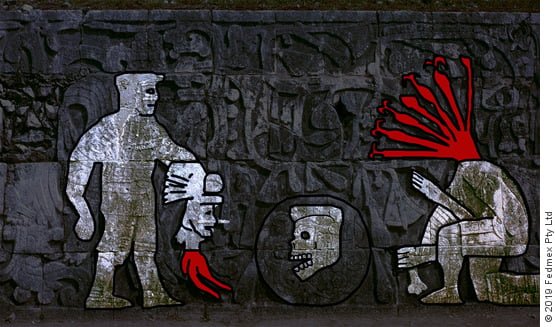
Ballcourt reliefs from Chichen Itza, Yucatan, Mexico,
showing the Mayan civilisation’s practice of human sacrifice
So what’s human sacrifice all about? As explained in par. 782 of FREEDOM: ‘The upset in humans eventually became so great that only such astronomically shocking acts as murdering our fellow humans could exceed our astronomical levels of upset, and by exceeding the upset temporarily quell it. The feeling of shock and revulsion overrode the feeling of upset and, through that, temporarily eliminated the latter…The ‘valving off of upset’ can be better understood as the souls of those involved being so revolted and shocked by all the bloodletting that the upset in those involved was, for a time, nullified.’ So you can immerse yourselves and understand that more and more, but that’s what’s really going on. We are just shocking ourselves with such extreme stuff that it finally overrides our feelings and gives us a moment of relief. So that’s what all that sacrificial horror stuff was all about. So anyway we had pills and witch-doctors and quacks and everything because we couldn’t talk about the truth, about the innocence of the child within us and what happened to that; all we had was rubbish that just addressed the symptoms, not the cause, which is what happened to us.
So now with our species’ upset corrupted state explained and defended this whole situation changes. Once we can admit how upset and mad we are, real therapy at last becomes possible. All the lies and silence, all the denial and delusion ends and relieving truth and understanding can flood through every situation, most especially through our ability to understand our own lives and all the upset that happened to us. Innocence can be reconciled with upset, the child within us can be talked to and embraced by the upset adult instead of being repressed and pushed under because we couldn’t confront, be honest about and deal with its pain. We coped by blocking it out which just accentuated the problem, making it even more repressed. We can, as it were, and this is very important, talk to the upset excruciatingly hurt child within us, tell it all about our mad world, and we will be astonished how it can hear us and come back to life, and cry with the relief that we, our conscious self, has at last come down to talk to it. We can bring peace and calm to the panicking and terrified-that-it’s-evil child, and the relief that comes to that child is truly incredible. Able to be honest and all explaining now, real therapy is finally possible; ‘parenting’ is what I call it. [See Jeremy’s book Therapy For The Human Condition to read more about the real therapy that is now possible.]
‘Parenting’, taking the adult/the now fully understanding truthful secure reassuring position, is possible now for both the human race, as I do in FREEDOM, and for individual humans, as I’ve done for many of the members of our Sydney WTM group. I go back to the source of their extreme trauma and guilt and resulting extreme block-out, and from there get the truth up in a fully understood and contexted way. Whether it’s childhood sexual abuse, or parents’ lack of love, or a father who was authoritarian and terrifying, and replace defensive, dishonest block-out and terrible fear with calm, relieving, loving and fully accountable understanding. What is astonishing is how the child within us knows what we are saying to it is the truth, because our innocent child self within us is incredibly knowing of what is truth and what is cave-speak dishonesty. And it just loves all this out-of-the-cave truth of the understanding of the human condition in FREEDOM.
That is astonishing, because we practice repressing the hurt child because we can’t deal with it, so imagine the turnaround when you actually stop and say “No, I want to go back and talk to this child-part of myself.” And it is actually like it’s waiting there for you, and it actually responds, and it’s incredible. And the more truth you talk to it, the better/happier it is and it comes back to life, because it’s just been repressed all this time, so it is incredibly habituated. This is what I call ‘parenting’. It’s a very important word because ‘parenting’ means you take the adult situation, which is an understanding one, an exceptionally understanding one now because we understand the human condition. But already in the old world that’s what parents did to a child that was panicking and distressed. You would go up to the child and calmly just hold it by the shoulders and say “Sweetheart, it’s all right, it’s all right, settle down, it’s all right”, and with that reassurance the child would just calm down, and the parent’s security of self reaches the child and settles the child down. So that’s what ‘parenting’ is; it’s about taking a more understanding state that an adult has to the child’s situation and giving that child that real love of that understanding and calmness. It’s in the parent and it settles the child down.
We’ve got situations amongst some of our members where it’s just horrendous, the extreme upset. One of our member’s mother is extremely alienated and hurt, and unwittingly and unknowingly tried to reject the child growing in herself, her infant, and kill it, so it wouldn’t survive; in fact, previous foetuses did die in the womb because they couldn’t make it, but this person really struggled and survived. So this person, since they were a foetus, has never experienced love, just total rejection, because the mother is not even aware of it, they don’t know that they, in effect, don’t want the child, that they can’t give unconditional love, but that’s the case with a lot of these nurturing situations. I’ve written about it in chapter 8:16C of FREEDOM about how mothers don’t realise that they’re actually rejecting the child, the opening example is this: ‘When my baby was first born…I didn’t experience the rush of love at first sight that so many new mums talk about. In fact, for the first three weeks of his life I was overwhelmed by him and what his presence meant. I looked at him and thought, “Who are you?” He was like a little impostor in our house. I didn’t know him and I couldn’t tell what he wanted.’ (Katherine Chatfield, ‘Perfect Stranger’, Sydney’s Sunday Telegraph magazine, Sunday Style, 22 Feb. 2015). As Polly said about her midwifery experience of mothers giving birth in hospital, that a lot of mothers can’t relate to their child because we’re 2 million years alienated, what do you expect?
So this person in our organisation suffers from a lifetime of absolute terror, that’s all their brain has ever known. So it’s taken a lot of therapy, a lot of reassurance, a lot of ‘parenting’, to get that child to calm down, because any stress triggers the association that it historically has that stress equals “I’m going to die in the womb and I can’t make it” and a huge panic attack sets in. So, you can imagine the amount of ‘parenting’ that’s got to go on to stop that getting underway. In this person’s case we’ve got to a situation where we’ve finally got it under control by using this calm ‘parenting’. So what’s made the breakthrough is visualising that you’re in a roomful of mad, crazy people losing their heads, or panicking like the world’s on fire or something like that, that someone in there decides that “No, I’m going to be calm and sensible and pull myself together, keep my sanity and just deal with the situation calmly and properly, when everyone else has gone crazy.” So I used that as an example; because when this surging and panic comes up it’s absolutely horrifying, and it takes over the whole being and takes them back to the feeling of being in the womb, dying. And so now what happens when this panic starts is to get in first with the visualisation. So what they are doing is they visualise that they are this calm, sensible person in this madhouse, using this pantomime that I did for them, to help them visualise the situation—as long as they get in early enough, because once it gets underway, it’s impossible to contain, because it feeds off itself very, very quickly. A lot of people are using this ‘parenting’; Sus had a traumatic birth and still suffers from the trauma of that and has to ‘parent’ that, and Annie hurt her foot badly in the surf and she’s got to talk to that trauma and she can, she can ‘parent’ it. So the two words are ‘parenting’ and ‘feeding it’. ‘Feeding it’ means that once it gets underway it just feeds on itself and magnifies very quickly, and spirals, and you empty all your ability to cope because you’re stripped of your energy very quickly; it exhausts you once you conclude that you’re bad and you’re going to die. So the word that goes with ‘parenting’ is ‘feeding it.’ You’ve got to avoid ‘feeding it’, and you’ve got to ‘parent’ it, and you have to have this calm, understanding, reassuring state and that will settle it down.
There’s this actress called Jean Seberg who starred in a famous French film called Breathless with the actor Jean-Paul Belmondo; she was this little cropped-haired cutie in the film. Jean Seberg had a traumatic life; she was harassed by the FBI and they said she was a communist or something, but she did have lifelong struggles with her insecurity of self which indicates that she did suffer from a no-doubt childhood-adopted extreme psychosis, which eventually led her to suicide. And she left this suicide note saying, ‘Forgive me, I can no longer live with my nerves’, because she had absolutely no idea at all where the trauma in herself was coming from. So we need to now think a bit about what it’s been like to suffer from psychosis and have no acknowledgement of it; Seberg was just living in terror of a psychosis without any idea of its origins. That’s what it’s been like for psychosis. We could only medicate it, suppress it. It was only a few generations ago when many took a ‘little helper’ of sedatives like Valium and Bex, and prescription medication is even more prevalent now. And it wasn’t long ago when to admit that you suffered from a psychological problem was frowned upon and deemed weak and indicated you were an odd, badly-flawed person. So there’s been so much silence around talking about psychosis because we couldn’t defend or admit we were upset, so we all pretended like the musical On The Town that everything is fine, whereas With Life In Mind’s lyrics show it’s nothing like that.
So to try and walk a mile in Seberg’s shoes; this world of dishonesty about what’s really going on in humans is so great, and so she’s having these panic attacks, and as she said ‘I can no longer live with my nerves’, and she’s got no idea at all where these ‘nerves’ are coming from, and she can’t control them. She’s getting no therapy, no help, nothing; her body is owned by this panic. I mean how hard would that be to live with? You can’t get a handle on it at all. So she’s suicided because she just couldn’t cope with that. That’s what it’s been like for humans with no ability to cope, even for a young child when they can’t reconcile what’s going on, when it splits off completely from that conclusion that it’s an evil monster and thinks that that’s the honest assessment. It’s a kind of suicide, a psychological suicide.
And so it’s been so important to be able to try to achieve some therapy, like the television show host Dr. Phil, he’s trying to do it all the time with his patients; they try to give them a bit of therapy, trying to help them visualise their way out of their panic attacks.
It’s a huge advance from that silence and the effects of that, to finally be able to not only understand the macro of what’s happening, how vulnerable children are and so forth, but also to go down there and talk to the child with real understanding and real compassion and real genuine peace and security of self and how reassuring that is to help the child. There are the stories of Christ performing healing ‘miracles’, but really it was his calming effect, the soundness and sanity that people encountered, that had this impact on their madness. I don’t think he could walk on water any better than you or me, it was his calmness that had the miraculous effect on people.
I was going to ask Tony [Gowing] to talk about this ability to talk to his child within. You don’t need to know about the particular trauma from his past, but he started using tapping [Emotional Freedom Technique], which is another way to facilitate this access to the child within. Tony’s traumatised child thinks that it’s evil because it didn’t come to the rescue of a situation in his childhood, so then he misread the whole thing and blamed himself. So Tony, what was your experience and ability to make that connection and how astonished have you been?
Tony Gowing: I spent my whole life busy, extremely busy and very driven. And I couldn’t think, I would have to have the radio on the whole time, I’d just have to work and I did literally work 24 hours a day.
Jeremy: Trying to distract himself from this dark corner, this dark issue.
Tony: And then once I understood the human condition and became transformed, all of a sudden with the transformation I have an adult in myself who can be secure in the sense that I now know and understand that all the pain and mess in my life isn’t my fault, it’s not anybody’s fault, it just had to be like that, and it’s okay to be like that. And so I do have a secure person there who knows now what is right and wrong, is not baffled by the world, and has understanding of it and can be secure in that knowledge, totally secure in that sense. But that knowledge is sitting on top of all this morass of pain and intense insecurity and self-hatred. And it is a self-hatred. And so if you just picture what you view in your life, if you look at that screen on the wall, your whole life’s picture is just self-hatred. Everything you do, everything you walk around, everything you see, everything you touch, every action, every interaction, everything is completely filled in with just self-hatred, and everything’s based off that. So that’s why I was so mad as an adult, I just worked to distract myself. And that’s why all my behaviour is so mad as well, so every interaction that I’ve had in my entire life is all based off this fucking self-hatred, which just fucks every situation that you ever come across in your life. And so that makes it worse obviously because you fuck-up every situation and that makes you feel even more terrible.
So, that’s what’s been going on, and then you get the understanding of the human condition, and then you get the Transformed State [see more from Tony about the Transformed State on the Transformation page], which means that I understand that it’s not my fault. I can just live to get those understandings to the world. And I can preoccupy my time not with denying the human condition and denying my upset and denying that mess, but I can actually accept all that and let all that truth in to an extent, a small extent but an extent anyway where I’m actually able to live with that and understand it and know it and feel secure about that. So then when I go into the tapping I can take that adult now. Tapping is just a connection mechanism that allows you to talk to the deeper psychological layers in yourself, and so it just takes you to a calm place and you take that calm adult—and obviously with Jeremy’s help, huge help. Because I mean he’s essentially showing my ‘parent’ how to be secure. So I work my way back and eventually you get to that child at that moment, and it’s a very distinct moment where the child makes the decision that they are evil and for me it’s at 3½ years old; and it’s not like I remember the day, but once you tap back to it and you can feel it, you can see that you are back there and so you’re actually able to talk to that child and that parent is able to tell that child, and explain the human condition to that child, and take them through the whole story, as Jeremy’s just taken us all through today.
My life has always been walking around every minute of every day, and things will trigger me and the memories, so every memory I’ve ever had is obviously tainted with this self-hatred. So I get a memory, I get a fucking rush of self-hatred, and then I have to quickly rush off and do something to make myself stop thinking about that. But all of that just calms down once you are able to talk to that child and explain to them why it’s not their fault, they’re not evil, they’re not to blame, and all the mess that’s come since then is just a total factor of the human condition and the silence of no-one explaining the human condition. The final thing that’s happened to me, which has been the sort of biggest change with the tapping is, when I’ve tapped before I go back to the child where he thinks he’s evil and it’s all post thinking he is evil. So you’re forever having to reassure that child, because it’s not a lasting thing, because when your whole psychology in life is 100 percent taken up by that state of hate, that’s all there is—you can’t see that there’s anything other, you are totally unaware that there is. Like my adult state can listen to Jeremy and can understand that at one point in time I was a perfectly innocent child, and I understood that very well and that’s what I’d be explaining to my child, my hurt child, and I’d be saying this isn’t your fault, this is because you’ve made this decision at some point when you’re 3½, but when I tapped back I actually went prior to being 3½ and I very clearly saw when I was three. And if you picture that screen again of what you can see in your life it’s actually just open. You just start to understand an unresigned mind, you get a glimpse of what it is. Because all of a sudden there’s something other than a complete canvas of self-hatred, that there is a little person in there who was essentially just completely untainted, uncorrupted, who didn’t have that fear and self-hatred. Sorry, have I gone on way too long?
Jeremy: No, you’re going well, Tone, really interesting, brilliant [others in audience agree].
Tony: Anyway, so the big change is that it’s one thing to sort of intellectually know something and try and argue with that 3½-year-old child who does carry the self-hatred misreading and the whole life since, but it’s another thing to actually know, like the way I visualise it now as my life is, that there’s two parts of my life. There’s one before I was three and then there’s 37 years after and the 37 years after can all be taken care of by the Transformed State. That’s in the suitcase and can be looked after and can be explained. But the relief—because it’s not just understanding that the original person in me was good; I’ve experienced him. He’s clean, he’s free of that self-preoccupation, self-hatred and that just changes your world in that sense.
Jeremy: So Tone, he’s saying that he got back behind the event that caused him to decide he’s evil and all the recrimination that owned his life since, to before that, and having access to that pure innocence has been a revelation to him and given him access to a whole other ‘canvas’, as he described it, which is free of all that. So now he’s sitting pretty in the sense he can know of the two worlds, which makes him an even better parent of the two states, because he can see there does exist an innocent state. Then there’s the upset state and how it owns and preoccupies you. So that’s very powerful therapy that he’s reached, this being able to go back behind the pain. But there’s just one thing Tone, when you said you originally started tapping, because you were saying how you could talk to the child and how it was pleased to see you. Can you tell us a bit about that?
Tony: I’m just crazy trying to distract myself, because there’s a massive side of myself that is this little child within me just screaming out in torture and terror, and so my whole life was about going and winning power, fame and glory, and forget that terror, and then when I got the Transformed State it was very much like “Oh look, let’s just put all that in the suitcase and get on with trying to help save the world”. But when I stopped and actually did go back there, it’s very easy for you to see it in your head that the child’s just standing there saying “Fuck, thank fuck mate, thank you for coming back and just fucking explaining all that shit to me” [Tony laughs], because all that’s happening the whole time in yourself is that the child is in there just going “This is fucked, this is just terror beyond terror beyond terror beyond terror beyond terror beyond terror.” And finally, you’ve got a secure human; it’s like meeting Jeremy in person for all of us, or like Jeremy just said, when you meet a person who is secure, really secure, and when they talk to you it just calms everybody in the room, and you can see it. Jeremy’s just so totally relaxed about all this absolutely horrifying stuff that is the human condition—mothers causing autism and fathers just killing their children dead, or whatever the truth is. But when you get someone who is secure, and knows that love is the meaning of life, and shows you that, and then you can do that yourself and take it back, the little child inside is just over the moon, they’re just playing ring-a-rosy in the green grass all day because they’re just happy. I mean, it doesn’t get rid of all my 37 years of pain, you’ve got to go back and tap and do that all the time because as I said every experience of mine is just torture, upon torture, upon fuckup, upon fuckup, upon fuckup; it’s irreconcilable. But my adult self knows the overview story and the security in knowing that is what helps the child, it’s just what the child loves, because it’s them who can see how good the new world is. How good the real world with the human condition solved is; they can connect with it straight away and see it truly for what it is.
Jeremy: That’s all amazing stuff. I mean how this child is actually there and waiting and how Tony said he had to repress it, get on with life, and then with the Transformed State he had to put it in a suitcase and leave it behind. But they’re both in effect different sort of forms of repression, which is the opening point I made: what about the fourth situation where people have got an extreme psychosis and in order to be operational they need some help? They want to clear it all up. Like Tony said, you’d have to be in therapy all the time, tap all day long to keep it at bay, all the 37 years or whatever it was of feeling that he is an evil criminal. But he can get himself operational. At least there’s dialogue with his inner self and it’s astonishing to hear him talk about how he can actually make the connection and the child’s sort of waiting there. I mean, he’s literally talking in those terms like there’s these two people and he talks to the child and it responds and he tells him about the whole understanding…talk to Annie about her foot that she damaged in the surf, she talks to the foot, and she has a name for it, and she has this little discussion, and it’s amazing how the human brain works. But how far have we come since Jean Seberg when they had no understanding of the source of all this stuff, they were just owned by terror and can’t context at all.
So ‘parenting’ is the ultimate form of therapy but we’ve never been able to truly ‘parent’ because we’ve never been able to defend our upset and explain it.
So here’s Tony swanning around talking to his child, and he gets on so much with this Transformed State that he realises he’s got to stop and go and give it a bit more attention. Because that’s when he discovered he could actually get behind where this first criminalisation of his mind happened, to the life he had before that, and he just can’t believe how innocent the world is like and that’s been a great help for him to know the existence of having lived 37 years in that other state where it was terror, upon terror, upon terror, upon terror—you couldn’t stop him saying terror, you know was just awful.
But that’s just a microcosm of everyone’s life, variously trying to live with the human condition, everyone’s bouncing around pretending everything’s fine when With Life In Mind says that ‘this is the end’.
But that’s how important this therapy is because a lot of people need some help at least to try and improve their operational-ness and I wanted to talk about it because I know a lot of people will want that help. They’ll say, “Look Jeremy, I want to get the Transformed State, I want to get on with it, there’s a world to fix up, we’ve got to get these answers out there, but also you know, listen, I’ve got to do some therapy to get myself helped a bit.”
Like you got tremendous help [Stefan], and Olof did, for your ‘Ship At Sea’ state, because you’ve got this bridging understanding and you can just hear it in Olof’s voice when he said that the moment I said the socialism in Russia was more evil than the Nazis how much relief he felt; he said the words “flooding through me” or something like that.
Harry’s a very, very great psychiatrist and he’s brilliant at it. Really, really brilliant at it. And obviously because he’s got so much empathy in him which is how he could cope with this stuff and find his interest in this. So that’s why he’s such a good friend to me and why I talk to him every week because just to hear his voice is soothing, he helps me. I could tell you stories about Harry—like there’s this elephant that lost its partner, it died in a zoo. So there’s two elephants, one of them dies and then the elephant’s grieving, it’s just morose. But also the keeper’s gone into a huge funk because of the loss of this elephant she’s obviously very close to. So they call on Harry; he’s a psychotherapist and he therapises animals. There’s this bonobo, Brian, that he’s world-famous for rehabilitating.
Media generated by Professor Harry Prosen’s therapy of ‘Brian’,
a psychologically distressed bonobo (pictured at left)
So they call Harry in, so Harry comes in and assesses the situation because he’s a very empathetic person, and he sums up what’s wrong, and he takes the keeper over near the elephant, and he gets the elephant’s trunk and puts it over the shoulder of the keeper and it’s just an intuitive, inspired act. But that’s empathy, the shared sympathy that they both have, the elephant and the keeper, brought them both out of their funk. It’s clever, wasn’t it? He’s good. You can imagine Harry’s still therapising people that come and see him you know, but how good he is, is because he’s got such intuitive instincts. You know how he found this and can’t get enough of this; he loves it because he can see it. That’s why he said, ‘Jeremy, in all of the theories I’ve studied this stuff of yours covers the whole lot of them.’ Because it does, it gets to the bottom of the real problem and then makes therapy real at last. We can ‘parent’ ourselves with understanding. So that was a really good little talk from Tony because you get the whole story there and you can see that everyone is going to need some help. Not everyone, but some, and you can start to see the beginnings of how the new world is going to take shape, which is what I’m trying to communicate in this talk. [Again, see Jeremy’s book Therapy For The Human Condition to learn more about the real therapy that is now possible.]
Okay so again, this all has parallels to what happened with the human race. As explained in Video 4, the human race felt guilty, so bad, even evil monsters for destroying paradise, so then we split ourselves off, which is what the child does, to try to block out the whole issue of our corrupted condition, which is Resignation and so on.
I’ll just make this observation, all the historic lying is why children are now so distrusting of adults, which is why it’s very hard to counsel a child. We got an email yesterday from a child?
Annie Williams: He’d written an article on an educational website called ‘My Hero’ and I think he’s a young teenager. His name’s Komay Sugiyama, he’s in San Diego in California, and he’d just written this article about you and why you were his hero. He’d obviously read quite a bit and used some quotes from Harry and from our website to illustrate why he feels that you are a hero—which was because you knew there was something wrong with the world, and you wouldn’t accept that that wasn’t right, and that the world was telling you there was nothing wrong but you wouldn’t accept that that was true, and he kept saying it was “Jeremy’s determination and resourcefulness, that is why he’s my hero” and he repeated it about three times. And it was because you wouldn’t let go of the truth that there was a problem on the world and people needed help and that’s why he wrote it. And only a child could be that honest about you and it’s very beautiful.
Jeremy: Yeah, but see that’s been one of the problems for children, they’re so distrusting of adults. We’d love to talk…imagine all the children about to hit Resignation and a lot of you will find it, you’ll have cousins, etc, that are going into Resignation and you’ll try and talk to them about this. But there’s a problem, that child [Komay Sugiyama] must have found that on his own because a lot of people when they’re going through Resignation search the whole world for the answer because they’ve got an immaculate shit-detector. So anything coming out of the cave they can spot it a mile off. Because that’s how accurate the instinctive self is. So that child [Komay Sugiyama] is needing some help and suddenly hears it and can’t believe his luck; like you when you found us, Stefan.
Yes, the problem with children is that all the historic lying is why children now distrust adults. They don’t expect honesty. Hence in F. Essay 30 on Resignation, when [the American Pulitzer Prize-winning child psychiatrist Robert Coles] broke the rules of denial it was hugely helpful to that resigning boy. There’s this little cameo piece where Coles talks to a child and says, “I broke the rules of what I’ve been trained to do and said I remember being there”, and the boy started crying because someone had spoken the truth to him; he finally let the truth out that the world isn’t perfect and adults know it’s not perfect. There’s also the unresigned Holden Caulfield—that whole book Catcher in the Rye goes on and on and on and eventually some older bloke sits down with him and says “Listen, mate, you’re gonna have to quit, the world’s not perfect, it’s not like that.” He sort of ratted-on the dishonest world, and finally that little bit of honesty goes a long, long way to help Holden Caulfield cope.
In my life, my own case, it was Sir Laurens van der Post because I just couldn’t accept all the bullshit, and then I found this person writing this book about the innocence of the Bushmen of the Kalahari and, as I said, in the van der Post essay, F. Essay 51, there’s a photograph of my copies of van der Post’s books about the Bushman—Heart of the Hunter and Venture to the Interior—and they’re so tattered from use and that’s the second lot of those ones; they’re tied up with a bit of string, that’s how precious it was to me for someone to break the silence.
Jeremy Griffith’s tattered copies of The Lost World of the Kalahari and
The Heart of the Hunter. These are actually his second set of these books
because his first set became so tattered from use he had to replace them.
But you’ve got to defend the silence of the upset world. I mean, how are people going to cope with being criminals and not being able to understand it? Because every human has thought they were criminal for destroying the Garden of Eden. So that’s the bigger picture, the small picture. The macro, the micro. They’re the same.
It hasn’t been in a child’s imagination that they can run into someone who can be honest about the world. They just expect silence or lies and bullshit from the adult world. But that all changes now. But we are going to have the problem with children because they are instinctively distrusting of adults. You can talk about this, but you’re not getting through. You’re speaking up against 2 million years of people lying to them, adults lying to them. So you try and say, “No, no, no, we’re gonna tell the truth now” and they say “Oh yeah…” [Jeremy laughs].
The same applies for innocent races. This is important.
Eulogising Aborigines, in Australia’s case, for being able to find witchetty grubs or bush tucker and all that crap, and they talk about ‘Country’, ‘This is Country’, was just rubbish really, it was no help at all. To help children, to help more innocent races, requires the same thing: we have to be honest. We had to admit the upset in adults, and for more innocent races, admit the greater upset in other races. Honesty is therapy, the truth will set you free, but it had to be the full truth that defends us and now we have that. So it’s the same thing. Innocent races is the same, like a child; to help the Aborigines, we’ve got to be honest about our corrupted state—that they’re more innocent and we’re not.
Founder of the Zambian WTM Centre, Franklin Mukakanga,
speaking at the 2017 WTM Global Conference
We’ve had two recently, an African-American and an African-Australian, just absolutely loving this stuff and obviously they’re inspired by Franklin’s talk [Franklin Mukakanga’s talk is provided in Video/F. Essay 8: How this liberated me from racism]. It’s just such an authentic talk. And they got into this and it saved their life, and they’ve got big photos of their big extended family, and how they just absolutely love this, which is great. So, van der Post described the Bushman; he said, ‘mere contact with twentieth-century life seemed lethal to the Bushman. He was essentially so innocent and natural a person that he had only to come near us for a sort of radioactive fall-out from our unnatural world to produce a fatal leukaemia in his spirit’ (The Heart of the Hunter, 1961, p.111 of 233). Yes, ‘mere contact with twentieth-century life seemed lethal to the Bushman. He was essentially so innocent and natural a person’ that ‘mere contact’ was ‘lethal’. See, that’s what a child finds out when it tries to interact with resigned adults—it’s just lethal the contact they have with us adults, resigned adults. The resigned adult world is just lethal to them. So to help the Aborigines, if you really want to help them, we have to find the understanding of the human condition, which we’ve now found, and then take that understanding to them and tell them about our upset, and break the silence, and tell them about themselves—and the relief will just flood through them, as it’s doing for these African-Americans and African-Australians and to Franklin.
Part 5 The Healing of Humankind Where Everything Changes For The Better
Jeremy: Okay so now we’re down to the last page virtually. It is a long one, I told you it was going to be, but it’s good to have it all in the can. Alright?
So the healing of humankind where everything…[laughter from audience as Chris Habenbacher’s drawing of a free, smiling person appears on the screen behind Jeremy]. What? [Someone in the audience points out Chris’s picture] Oh right. Yeah, this is the punch-line and Chris has captured it. Chris is our resident artist now. He is sending his wonderful pictures.
Austrian WTM Centre member Chris Habenbacher’s painting of a new world happy chappy
Ok, this part of the presentation is called ‘The healing of humankind where everything changes for the better’. With the arrival of understanding of the human condition, the old dishonest and deluded world becomes so transparent it rapidly loses its hold. The whole soul-dead and brain-dead, psychotic and neurotic, angry, egocentric and alienated life we have been living, in Plato’s horrible dark cave, rapidly goes and a whole new truthful and loving and meaningful world emerges. The world of pain and suffering we humans have been living in ends, and love and peace comes to planet Earth. Understanding the human condition ends the whole world as we have been viewing it and living it. The whole insecure, artificial and superficial life we have been living, can now be seen through as false and redundant. All our competitive power, fame, fortune and glory seeking activities are rendered transparently false and have no consequence. All the dishonest soul-and-truth-denying intellectual pursuits of the ivory towers of academia can be seen through now and so become obsolete. All the ways we have been preoccupied developing to artificially make ourselves feel good about ourselves, of fancy clothes, pretentious houses, extravagant vehicles, lose their significance, relevance and meaning, as does competitive sport. All our dishonest and deluded and pretentious laughter and joking is rendered transparent and no longer needed. It doesn’t mean we won’t be laughing or making jokes but they won’t be the fraudulent ones. Yes, the old dishonest, dark desperate and miserable pea-sized cave-world we have been living in is going to rapidly become a museum and a whole new truthful, all-loving, all-sensitive, all-caring, and all-meaningful world is going to emerge.
As I say in the first video on our website, this is the most momentous event in human history. It really is. So this classic description we all love from FREEDOM [par. 1166] describes the excitement of the transformed world we’re coming into: ‘The excitement and relief of being effectively free of the human condition—the joy and happiness of being liberated from the burden of our insecurities, self-preoccupations and devious strategizing; the awesome meaning and power of finally being genuinely aligned with the truth and actually participating in the magic true world; the wonderful empathy and equality of goodness and fellowship that understanding of the human condition now allows us to feel for our fellow humans; the freedom now to effectively focus on repairing the world; and, above all, the radiant aliveness from the optimism that comes with knowing our species’ march through hell has finally ended and that a human-condition-free new world is coming — CAN NOW TRANSFORM EVERY HUMAN AND THUS THE WORLD.’
Yes, as I’ve said in every major document I’ve ever written, going back to Free: The End Of The Human Condition, which was published 31 years ago now, in 1988: ‘Soon from one end of the horizon to the other will appear an army in its millions to do battle with human suffering and its weapon will be understanding.’
So, yeah, I’m talking a lot in there about the massive change, the total change, because it will take a little while to seep in, because people don’t realise the change that this brings. It does bring an end to all that. It all becomes transparent, meaningless and ineffective, so everyone will go on playing their old power and glory games and think they’re going to do this and that, but increasingly it’ll just become meaningless and obsolete, because it’s transparent now, we can see through it—we can see it’s just a fraud, what we were doing, so it just loses its power. So what’s coming is Chris’s picture, the happiness of the transformed world, which is just very exciting as you can see.
Olive Schreiner, the South African woman who wrote The Story of an African Farm, has got this wonderful, little essay; I’ve got to read a bit of this because this is just lovely. This is an essay she wrote called Somewhere, Some Time, Some Place, which is the historic intuitive statement that has been made a lot in great literature; some time, some place, somewhere, these answers are going to appear. So she said: ‘When a child, not yet nine years old, I walked out one morning along the mountain tops on which my home stood. The sun had not yet risen, and the mountain grass was heavy with dew…I walked till I came to a place where a little stream ran…I had got up so early because I had been awake much in the night and could not sleep longer. My heart was heavy; my physical heart seemed to have a pain in it, as if small, sharp crystals were cutting into it. All the world seemed wrong to me…Why did everyone press on everyone and try to make them do what they wanted? Why did the strong always crush the weak? Why did we hate and kill and torture? Why was it all as it was? Why had the world ever been made?…The little sharp crystals seemed to cut deeper into my heart.
And then, as I sat looking at [the stream]…the sun began to rise. It shot its lights across the long, grassy slopes of the mountains and struck…[a] little mound of earth [at the water’s edge]…All the…flowers and grasses on it turned bright gold, and the dewdrops hanging from them were like diamonds; and the water in the stream glinted as it ran. And, as I looked at that almost intolerable beauty, a curious feeling came over me…I seemed to see a world in which creatures no more hated and crushed, in which the strong helped the weak, and men understood each other, and forgave each other, and did not try to crush others, but to help…And there came to me, as I sat there, a joy such as never besides have I experienced…a joy without limit…
[T]his feeling [that] came to me, a feeling…not easy to put into words…was like this: You also are a part of the great Universe; what you strive for something strives for…you are moving on towards something…
In the long years which have passed, the adult has seen…the greed, the ambition, the cruelty and falsehood of the individual soul…in so hideously enlarged and wholly unrestrained a form that it might be forgiven to one who cried out to the powers that lie behind life: “Is it not possible to put out a sponge and wipe up humanity from the earth? It is stain!’’… ‘Within my own soul I have perceived elements militating against all I hungered for’…I have tried to wear no blinkers…I have tried to look nakedly in the face those facts which make most against all hope—and yet, in the darkest hour, the consciousness which I carried back with me that morning has never wholly deserted me…
That which was for the young child only a vision…has, in the course of a long life’s experience, become a hope…which a growing knowledge of human nature and human life does endorse. Somewhere, some time, some place’ (An Olive Schreiner Reader: Writings on Women and South Africa, ed. Carol Brash, 1987, pp.216-220 of 261).
‘A joy without limit’; she had this connection with the dew drops on the grass in the stream, of a time when we would break free of this state, ‘joy without limit’, and that’s what we’ve got. So, yeah, that’s some beautiful writing.
So, now I want to bring up these two images very quickly, just to bring it full circle.
So that’s the ‘fork in the road’ option we’ve all got, and the human race has got, and we can just carry on down the habituated highway, to a very fast-looming death of our species, or we can choose this liberated, transform path, and all the happiness that is in front of that, so all that’s stopping us is just habituated behaviour, and the deaf effect that results from it. [Read more about the ‘deaf effect’ in The Great Guilt that causes the Deaf Effect.]
And this is another drawing, which I used in a previous talk [see F. Essay 61], which has people ‘Pocketing The Win’, staying in their castle, taking the information, getting the win—we call it ‘Pocketing The Win’, where they don’t change at all, they don’t come and help us, they don’t do anything. They basically just use this understanding to be more operational in the old competitive world because they’ve got insight into what the world’s doing, so they can rip it off, build their castle even bigger; “Come here, Jeremy, give me some answers and I’ll use them and I’m not coming out of the fucking castle for any money.” But it’s pointless trying to live that life, basically they’ll be still up there doing that when everybody’s bolting…I added all these people running away from there [the ego-castle] going to another place [pointing to left-hand-side of image of people racing towards the sun, towards freedom]. So I just wanted to bring those today. [You can read more about how to manage the inevitable shock that the arrival of understanding of the human condition brings in The Shock Of Change that understanding the human condition brings.]
So yes we can return to paradise. As T.S. Eliot said, ‘We shall not cease from exploration and the end of all our exploring will be to arrive where we started and know the place for the first time’ (Little Gidding, 1942). So that’s what’s possible now, we do the full circle, we go from ignorance to enlightenment and we end all the suffering. So that’s it, sorry for it being so long. [Applause and clapping]
Sus: Amazing, Jeremy.
Jeremy: So we’ve got a Transformation talk later today. I hope I haven’t eaten into that.
Stacey: It was just wonderful, Jeremy, there are no words to describe it.
Jeremy: I thought it was good to get that stuff in at the end about finally dealing with the psychosis, and how we’ve got to fix that up. See, there’s two hugely exciting activities, apart from spreading the word, and that is the transformed life, but what we needed to add to it is this other thing, so we’ve got both angles covered: we’ve got our psychosis, and we can start dealing with that, and we’ve got the Transformed State to get on with the job overall. So we’re beautifully armed now for the new world. I did do a talk about this psychosis in the video titled Effective Psychological Therapy, but now this talk is to try to go through it within the context of our whole journey and tie it all up in a neat bow.
Monica: Absolutely stunning.
Annie: I just wanted to clarify about Maxy.
Jeremy: Yes. [Everyone laughs]
Annie: Because you have to do your job and you were frustrated at times with him, but whenever he needed reassurance, whenever he was afraid, he would come and stand beside you, and when you talk about the bonobos and love conquering our pain, that’s what it’s like being around you because your love rescues us. And Franklin talked about a ‘soul alive’, the power of a ‘soul alive’, and it is like watching a different species, it’s just the most extraordinary experience and all humans can have that experience because it’s all in FREEDOM, but your love has rescued the world. Like Tony said, when you’re with someone who’s secure, that isn’t worried about their own ego relief, but is just worried about the welfare of the world—like that little boy [Komay Sugiyama] saw. Even despite the deaf effect and despite the incredible cynicism—which is such a beautiful way to describe cynicism, that it’s losing faith with goodness—you know that we’re going to come home and you know that love will rescue us. So Maxy knew that and he knew what he was involved in and he knew that it was helping you.
I just can’t express what an incredible privilege it is to just even be here listening to you because you are the missing link to our soul’s world, and it shows us all that, that is where we come from, and all our little children when they read FREEDOM, like that little boy, know that you’re telling the truth and know that it is an innocent child talking to them. It’s just the most magnificent human journey that you’ve completely explained so beautifully. But I just felt an image of that little boy in front of the horses is missing from this talk because without that innocent little boy we wouldn’t have this talk.
Jeremy: What’s that image?
Annie: Of innocence leading us home.
Jeremy: Oh the little boy, I know, in front of all of the horses.
Annie: And you, you’re innocent, and my God, you’re not even upset, you’re not resigned and you can come to this resigned, upset position and explain it to us and not just explain it but give it love, call it ‘upset’. It’s the most beautiful, kind word ever invented that you gave us, because upset’s there for a very, very good reason and we’re not bad and that word says it all. It’s just the most beautiful gift to me that word because I can live standing tall and standing strong in my upset, and dedicate my life to the words in FREEDOM to help save the world. It’s just extraordinary, and Maxy sort of somehow knew all that I think.
Jeremy: Still, what I said was true. But, yeah, I’m astonished of what my soul does. I mean I’ve got to live with me…I didn’t set out…but yeah it just keeps astounding me what it can do sometimes. Fuck, I’ve seen it pull off some amazing stuff…oh, quite a lot. [Laughter] I’m trying to be honest about it.
Annie: And the world has hated you for it, and tried to kill you, in effect, and that’s what that little boy [Komay Sugiyama] recognised; everyone should go and read that post, it’s amazing. He knows what’s gone on, it’s just the innocence of a little boy; The Little Prince, van der Post, you, Christ, everyone, that little boy, it’s the golden thread to save humanity.
Jeremy: And the child will lead them to the promised land. It’s true, our souls will lead us home, but our intellect’s got to do all the hard work, the soul just comes along at the end and puts it all together. Bit of a cheap performance really. It’s a good effort, but…[audience laughs]
Sam: I just want to say something. I’m not going to do it justice like Annie, but I just felt compelled to say something. Just trying to, towards the end of the meeting, think about what it meant to me and the things I jotted down is, it’s just such an extraordinary telling of the human journey. There’s just so much honesty. There’s so much truth. It explains so much, what you’ve gone through. I was writing things down and going through that, and there’s just so much apparent confusion and whether it’s sex or different races, and so on, and starting right at the beginning in terms of how we lived from 5 million years to 2 million years ago. Just for me, the things that were coming up in my mind, it’s a wonder of the new world; like you think about pyramids and things like that, they’re wonders of the ancient world, well this was a wonder of the new world.
For me the talk was like a structure that kept rising, I had this vision like you’re out at sea and it’s like an island or a mountain that just keeps rising out of the water, and it got more and more magnificent. And the other thing I reflected on, in the middle there, is at one level I can find myself thinking how harrowing the human journey is, but the two main footholds for me were what you were talking about in terms of just how unbelievably empathetic and cooperative, sensitive we were, and then you painted a stark picture of just how upset and corrupted we’ve become—and rather than that being actually harrowing, I just sort of kept seeing it as a seesaw; you’re just putting more and more argument, not in terms of how bleak the situation is, just more and more argument for how much it’s a cause for celebration, that what ends now and what starts now, and that’s really important for me to process it that way in terms of not getting caught in the middle, in terms, of just how harrowing it is. And you just use those words, just some of those quotes, about the inability to save a life, someone saying they wish they weren’t born. I mean, I just totally relate to that—that is living with the duress of the human condition. But it is a cause for joy, it is a cause for celebration, because that’s what stops now and it’s that deep empathy, and all that talking to trees, that level of empathy, that’s actually what starts or is resurrected. And you use that turn of phrase, ‘deadly honest’, and that’s the point, honesty is no longer ‘deadly’. This is the honesty that rebirths humanity.
And you talked about an unresigned mind showing up at key points along the journey and I just thought to myself this is Moses, this is Plato, this is Christ, this is Griffith, and you used the word ‘momentous’—that is what humanity has relied on to turn up at key points along the journey to go to the ‘bottom of the well’, provide a different model, provide the basis for humanity to change course in terms of dealing with the human condition, and obviously we’re at a point now where we’re not just managing the human condition.
And that one quote about the surpassing glory, and if I try and get a foothold in my mind of just the magnitude of the change that I’m a part of, or what’s going on here—they’re almost recognised benchmarks in terms of the Ten Commandments and then the significance of Christ in terms of humanity’s journey, and then if you talk about moving beyond the embodiment of ideals to actually understanding them—then that starts to give you something of an adequate scale to measure the change of just how unique this information is, and therefore it’s the only thing that can stop us from destroying the planet, and it’s obviously a measure of just how important this knowledge is. So I just want to reinforce what Annie said.
I like that it’s an extraordinary telling of the human journey, it is fucking phenomenal what we’ve been through, and it’s phenomenal where we’re at, and my challenge is to actually open my eyes to that is how significant, how momentous, what has happened and what’s here and now. So, that’s what I wanted to say.
Jeremy: It is a massive turnaround point for the human race isn’t it. The little boy from Mumbil did a pretty good job. I don’t think of it as that special, but I think it is! [laughter] No, no it is incredible. I mean, I didn’t do any more than what you [Stefan] did. I mean, you just sat there and didn’t want to accept all the bullshit and tried to figure it out; there’s something wrong, no one’s doing anything about all the suffering. It is incredible, how much suffering there is out there, you know how wrong it all is, how it should be different and all that sort of stuff. So I’m just coming from an unresigned position. Or you can just immerse yourself in Olof’s shoes; you know how tortured was he by all the wrongness and how much did he try to resist it and try to say this is all wrong, this is crazy. And that’s my starting point. And so everyone tries to resist all the bullshit and most have to resign, some ‘Ships at Sea’ stay out there at sea and keep battling on and try to make sense of it and keep thinking truthfully. They all get various distances out there in terms of succeeding to do that. Sooner or later someone’s going to turn up that’s got enough soundness, I guess, to crack it and I had the benefit of science and van der Post; it is, like Annie said, a golden thread, a very fragile thread. As I said, van der Post wouldn’t be heard of any more if it wasn’t for this, and there must be lots of denial-free thinkers; well, look at all the ‘Ships At Sea’ that have just disappeared because what happens to you or Franklin or Olof and what’s happened, therefore, for millions and millions of ‘Ships At Sea’ that couldn’t resign or didn’t and should have or whatever. This is just how their lives must have just gone on in complete madness, if you like, because they didn’t resign. You’ve got to choose between resigned madness or unresigned madness, [laughter]… insanity—resigned insanity or unresigned.
Annie: In Newsletter 24 you say alienated sanity versus honest madness, that’s how you describe it.
Jeremy: Yeah well done, Frangipani [Annie]. Yep, so, there’s no specialness, it’s just there’s this great spectrum of alienation out there. Some people, most people, had to resign, some don’t, variously amongst them some get there, but if you want to look at how this understanding really affects all of that, is it just makes you sensitive to the more upset state. If there’s any feeling of specialness, it’s the more upset, what they’ve been through. [The actress] Jean Seberg…they’re the heroes. And ‘Ships At Sea’, they’re just lucky enough not to be able to give in. And the resigned are less lucky, because they had to give in. But really at the end of the day, we can understand how heroic humans are and it’s just incredible.
I’m on the outside and can look in reasonably freely at that, but when I look in and try to walk a mile in what resigned humans have been through, I can’t begin to empathise completely with that, I can’t reach that, it’s just too awful. Then I’m thinking, oh God, how much courage have they got! I honestly don’t see myself as special at all. The people I think are special are those that are really living with the human condition; fuck, I mean, I’m amazed at what my soul does, but it doesn’t really interest me. That was beautiful what Annie said and Sammy said. But, yeah, the whole human race, everyone’s trying, everyone’s trying as hard as they can and variously according to where they happen to be in the human journey, so they try their guts out. Van der Post has got a really lovely description about the human journey—The Victory Parade—and that’s wonderful. [The Victory Parade refers to van der Post’s wonderful description of humanity’s incredibly heroic journey all the way from the emergence of life to full consciousness to finally transforming enlightenment. See More Good Info 7: Freedom Webinar 1.] I mean walk a mile in a bug’s shoes when they can’t even think for a start, they go around and, “What?”, and they just crawl around and then a lizard comes and eats them, for God’s sake. That’s not much fun.
Actually, I do get a lot of stress thinking about animals, watching them eat each other up all day long, competing, trying to reproduce. The ‘animal condition’ is pretty awful. We have to do something about that. The lizard’s tail is a start [laughter][Jeremy is referring to his children’s picture-book, A Perfect Life.] I don’t know if we do anything about it or not, but it’s pretty awful. The story of natural selection is the story of death and torture. That’s what it is, not life. Life on Earth…torture, death on Earth. You’ve got eyebrows Stefan, because there’s a lot of previous ‘Stefan’s’ that didn’t make it because they didn’t have eyebrows, so natural selection selected you because when the chips are down and you’re trying to escape the predator, you’ve got an eyebrow that stops the sweat getting in your eyes and you can still see where the bloody predator is to make your escape. But what about all those guys that natural selection didn’t select because they didn’t have eyebrows. Fingernails, everything…there’s a whole story of death and destruction all over the joint. It’s pretty awful, isn’t it? I was watching a ladybug on a plant and it’s quite blasé. It was just traveling around the joint, up and down the leaves, and I was thinking, “Mate, there’s lizards in all directions around here [laughter], you’ve got fat chance of surviving”, but that didn’t seem to worry the ladybug at all. That’s why they can’t think about it, they’d be terribly upset about it all.
I was watching dogs in the park this morning, running around, and I thought the thing is about dogs is they really like having a run around, right, and they’re really good fun, but they don’t know that they’re going to have a short life. They only live to 10 or 15. By the time they get to 10 or 12 they start to get a bit infirm; it’s a pretty short life. So I was thinking, it’s just as well they can’t think too well because they could work out, “I’m only going to be around for a bit” and that would be a bit daunting for them maybe. So I thought, they’re bouncing around and having a good time because they can’t think. At least they can think a little bit better than the bug. But what about plants, walk a mile in their shoes [laughter]…they can’t see shit, they can’t move, they’re stuck to one place. Imagine if you’re a plant and you grew on the side of a cliff. I mean you’re blind so you can’t see it, just as well you don’t open your eyes and say, “Fuck! I’m getting out of here!” [laughter]. But they’ll grow anywhere and the trees don’t give a fuck when they spread their seeds, everywhere, all over the place. What about sharks? I can’t remember which shark it is, but the first one that hatches eats all the other ones in the womb, so they’re born really advanced, because they eat all their siblings, so that’s not very nice, that’s fucking ruthless behaviour if ever there was some. I mean there’s quite a lot of suffering wherever you look.
The human suffering has been incredible, fucking hell, and the bravery of those little bugs is not bad is it, not that they know that they’re being brave but I thought it was pretty fucking brave. I could say, “Look mate, if you come over here you’ll see that lizard right there.” Because they’re only little, lizards, about that long. So I thought, you’ve got fat chance, but you know, they’re just charging around the joint, happy as Larry, apparently. And [our dog] Gyp doesn’t know anything about dogs having a relatively short life. So, anyway, honestly, human life…I’m just mumbling because I can’t connect with it—the original anxiety in me that made me so distressed about humans made me want to stop it all. But I can work it out, because I can work out what Olof’s saying, because if you walk a mile in Olof’s shoes you can hear from that one little comment he made, how tortured he was by all the wrongness and wanting it to stop. That’s the unresolved ‘Ship At Sea’ state, right, or Stefan with his elephant, that is hilarious to me; I just love the elephant story. Stefan taking over the whole lecture theatre and telling them about this bloody elephant, they’ve got no idea; he’s supposed to be talking about something else but he’s saying “No, there’s this elephant and it can break out of its moorings any time it likes, but it doesn’t. So why doesn’t it?” Which is basically why doesn’t the human race? Why are they all so strangled, what’s going on? Yeah, and then he come up with the aliens, which is a really good idea. But you can tell from that what the ‘Ship At Sea’ state of mind, or the innocent advanced child or young adolescent who’s still thinking about the world, is thinking—it’s the wrongness of it. It’s just saturated with the wrongness and just wanting to fix that, that’s the whole of your makeup, isn’t it, that’s your orientation. So that’s obviously my orientation in the extreme, which is why van der Post was so important, because everyone’s lying and the intimidation is incredible, but I am lucky, I’ve got a really great place inside myself where I live, my soul I suppose, and that takes care of me through thick and thin, or hopefully it does, or mostly it has done. So poor old Annie had to nurse me through 10 years of chronic fatigue and stuff, which is pretty tough.
Look, I honestly can’t remember how this all started, all I’ve got is my board directors telling me I’ve got to do this, work my heart out trying to do it. Fuck it, why do people want to analyse it.
Stefan: But I think that’s the inspirational thing, that you’ve found the answers and everything, that’s very special I think too, but what you’ve done since, this is the biggest inspiration actually—how you live your life since you found the answers and to know that everyone can live his life, her life, this way as much as they can possibly; you know, get themselves into it.
Jeremy: All I do is keep trying to find the answer. All I’ve done is try to find out more answers and I just keep trying to improve on the presentation. Anyway, so anyway I don’t want to talk about me anymore.
So anyway that’s it. We’ve met, we’ve gone for about 300 hours [laughs]. Thanks everybody.
Annie: Absolutely wonderful to have you with us.
Jeremy: Yes. Thanks you guys.
- - - - - - - - - - - - - - - - - -
Watch Jeremy Griffith present the breakthrough redeeming explanation of the human condition in THE Interview; for a fuller explanation read chapter 3 of FREEDOM; and for a summary presentation of the key ‘instinct vs intellect’ explanation watch Video/F. Essay 3. See Jeremy’s book Therapy For The Human Condition to read more about the real therapy that is now possible. And for all you need to know about the Transformed Way of Living, see our Transformation page.
Discussion or comment on this essay is welcomed—see below.
Please Note, if you are online you can read, print, download or listen to (as a podcast) THE Interview, The Great Guilt, The Great Transformation, Sermon On The Beach or any of the following Freedom Essays by clicking on them below.
INTRODUCTION TO THE EXPLANATION & RESOLUTION OF THE HUMAN CONDITION: THE Interview That Solves The Human Condition And Saves The World! | The Great Guilt that causes the Deaf Effect | The Great Transformation: How understanding the human condition actually transforms the human race | Sermon On The Beach | Freedom Essay 1 Your block to the most wonderful of all gifts | 2 The false ‘savage instincts’ excuse | 3 THE EXPLANATION of the human condition | 4 The ‘instinct vs intellect’ explanation is obvious – short | 5 The transformation of the human race | 6 Wonderfully illuminating interview | 7 Praise from Prof. Prosen | 8 “How this ends racism forever” | 9 “This is the real liberation of women” | 10 What exactly is the human condition? | 11 The difficulty of reading FREEDOM and the solution | 12 One hour summarising talk | 13 The WTM Deaf Effect Course | 14 Dishonest biology leads to human extinction | 15 How your life can immediately be transformed | 16 The Shock Of Change | THE BOOKS: 17 Commendations & WTM Centres | 18 FREEDOM chapter synopses | 19 FREEDOM’s significance by Prof. Prosen | 20 The genius of Transform Your Life | THE OTHER KEY BIOLOGICAL EXPLANATIONS: 21 How did we humans acquire our altruistic moral conscience? | 22 Fossil discoveries evidence our nurtured origins | 23 Integrative Meaning or ‘God’ | 24 How did consciousness emerge in humans? | 25 The truthful biology of life | • Survey seeking feedback | MEN & WOMEN RECONCILED: 26 Men and women reconciled | 27 Human sex and relationships explained | THE END OF RACISM: 28 The end of racism | 29 Can conflict ever end? | RESIGNATION: 30 Resignation | 31 Wordsworth’s all-revealing great poem | MORE ON THE TRANSFORMATION: 32 More on the Transformation | 33 Jeremy on how to become transformed | THE END OF POLITICS: 34 This understanding ends the polarised world of politics | 35 Death by Dogma left-wing threat | 36 Saving Western civilisation from left-wing dogma | 37 The meaning of superhero and disaster films | RELIGION DECIPHERED: 38 Noah’s Ark explained | 39 Christ explained | 40 Judgment Day finally explained | 41 Science’s scorn of religion | MEANING OF ART & CULTURE: 42 Cave paintings | 43 Ceremonial masks explained | 44 Art makes the invisible visible | • Second survey seeking feedback | 45 Prophetic songs | 46 Anne Frank’s faith in human goodness fulfilled | 47 Humour and swearing explained | 48 R.D. Laing’s fearless honesty | ABOUT BIOLOGIST JEREMY GRIFFITH: 49 Jeremy’s biography | 50 Australia’s role | 51 Sir Laurens van der Post’s fabulous vision | 52 Jeremy’s children’s book A Perfect Life | 53 The ‘instinct vs intellect’ explanation is obvious – long | 54 The accusation of hubris | DO WE FAIL OR DO WE MAKE IT? 55 Endgame for the human race | 56 Why there have been ferocious attacks on the WTM | 57 Magnificence of the Transformed State – video 1 | 58 Magnificence of the Transformed State – video 2 | MARKETING: 59 Shouldn’t the WTM’s website be toned down? | 60 The crime of ‘ships at sea’ ‘pocketing the win’ | GENERAL DISCUSSIONS BY JEREMY: 61 General Discussion by Jeremy Aug. 2018 | 62 Jeremy’s Masterpiece Presentation Feb. 2019 | HEALTH & HEALING: 63 Pseudo therapy/healing | 64 Real therapy/healing | From here on are Transformation Affirmations and More Good Info Emails
These essays were created in 2017-2024 by Jeremy Griffith, Damon Isherwood, Fiona Cullen-Ward, Brony FitzGerald & Lee Jones of the Sydney World Transformation Movement Centre. All filming and editing of the videos was carried out by Sydney WTM members James Press & Tess Watson during 2017-2024. Other members of the Sydney WTM Centre are responsible for the distribution and marketing of the videos/essays, and for providing subscriber support.


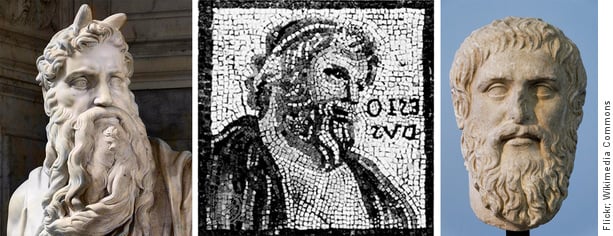
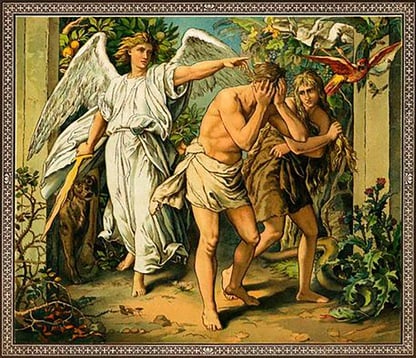
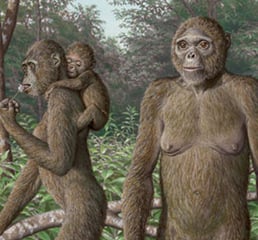
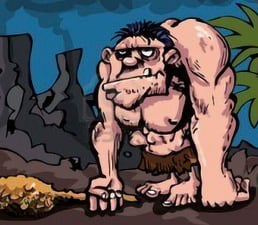
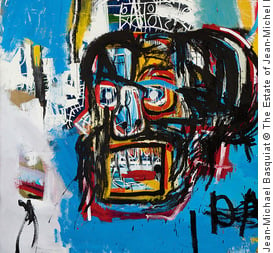
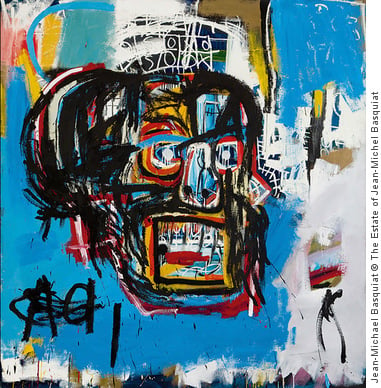
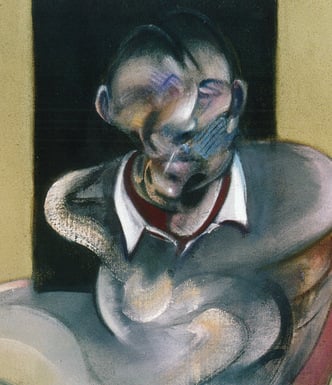
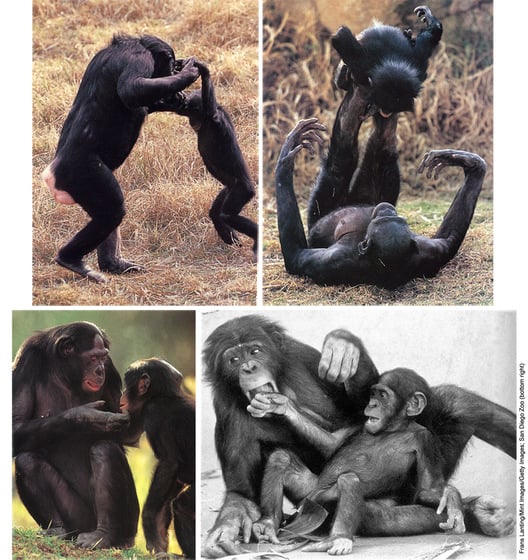
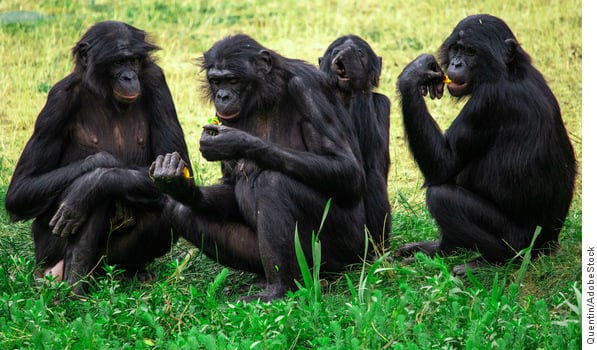

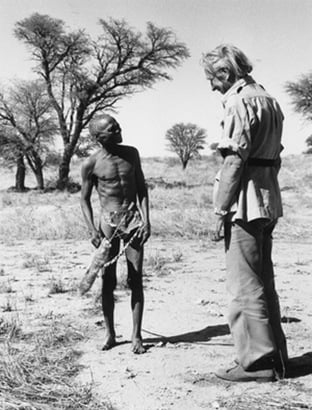
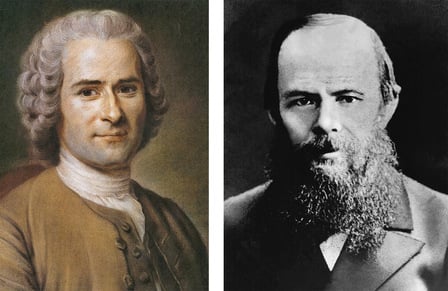
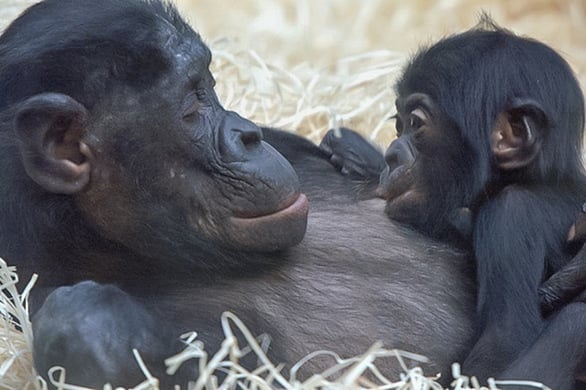
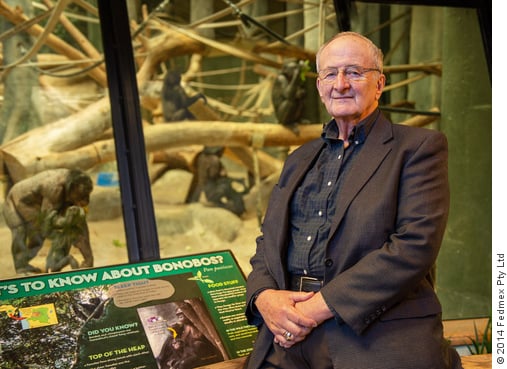
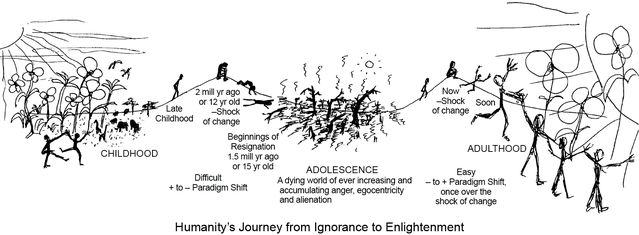
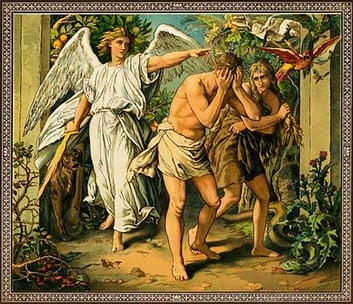
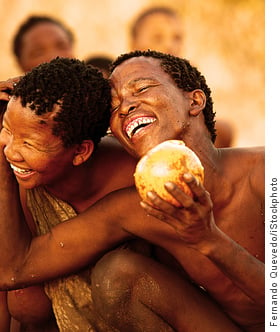
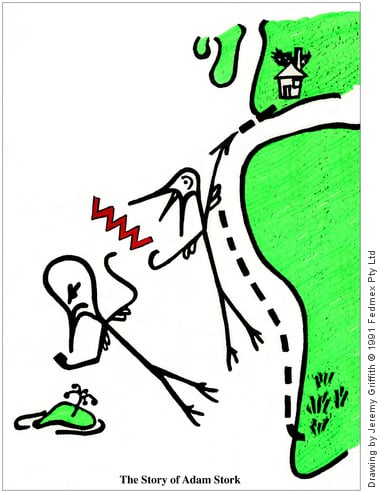
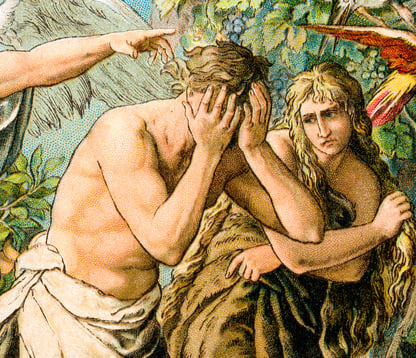
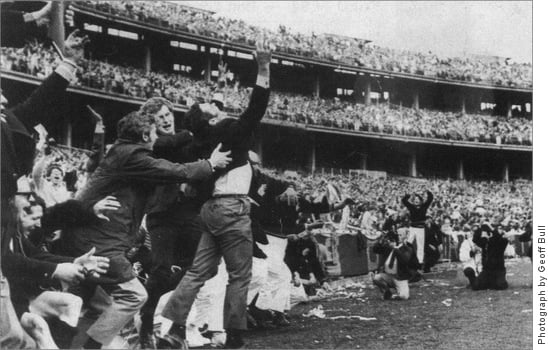

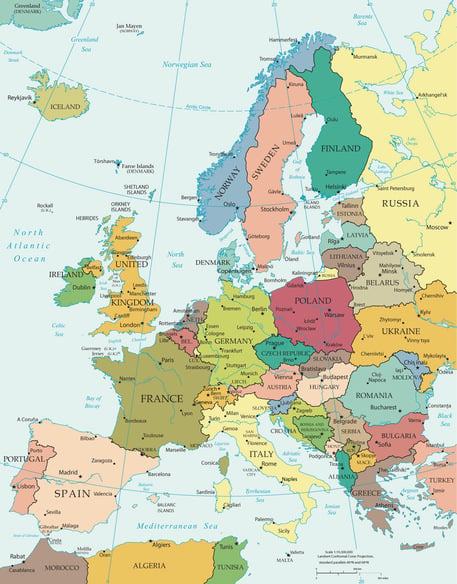
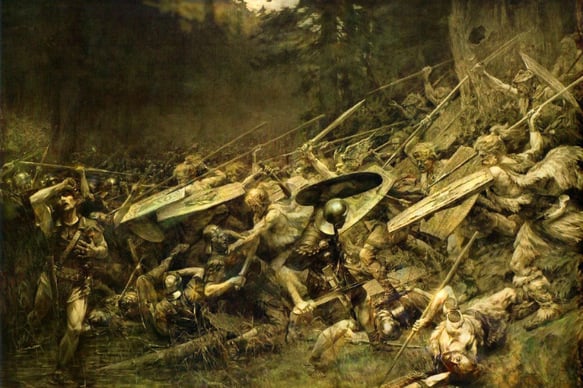
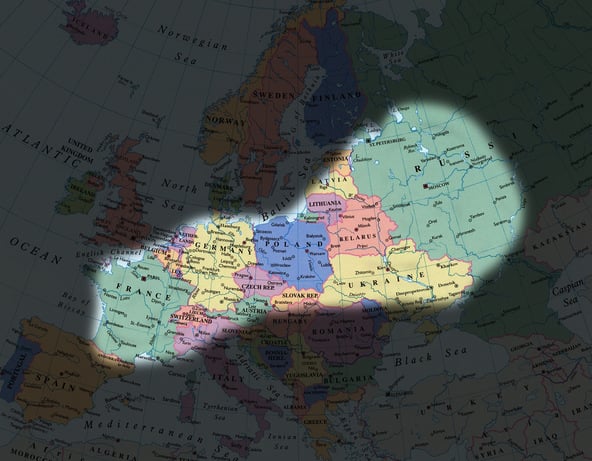
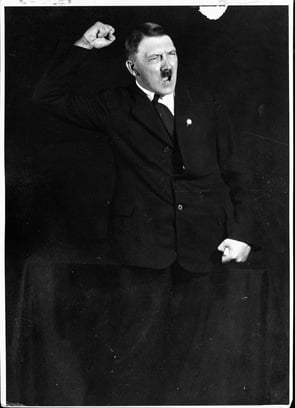
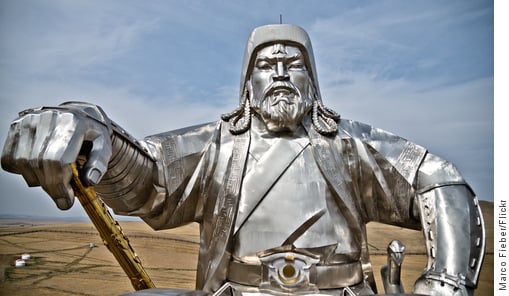
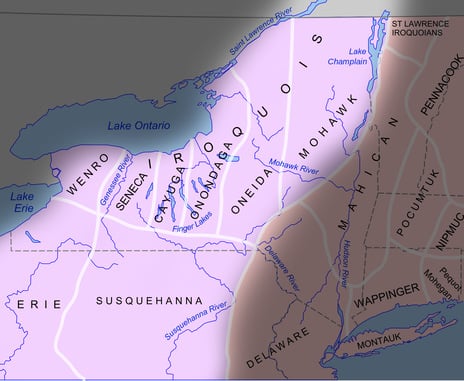
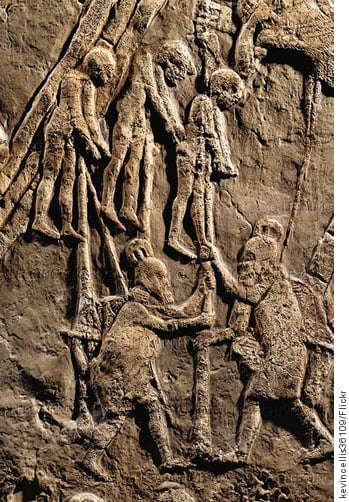
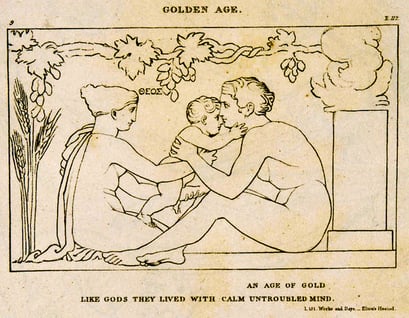
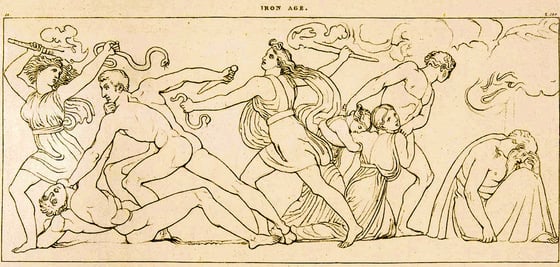


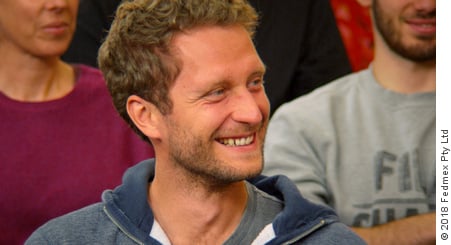
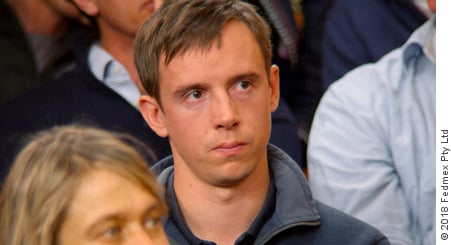
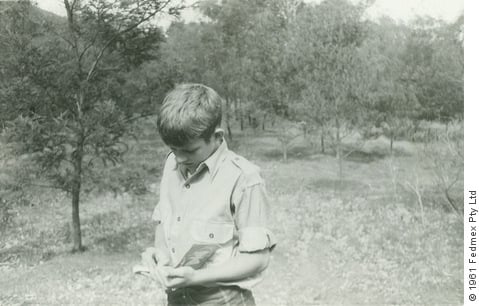
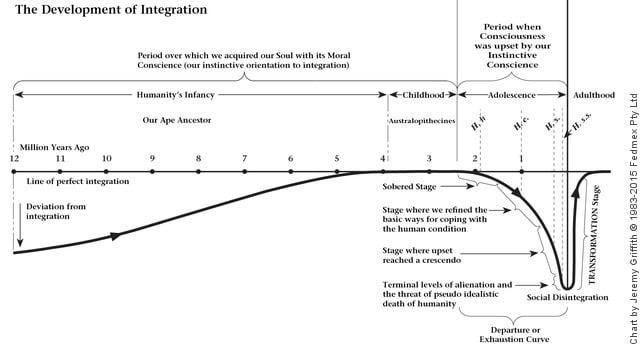
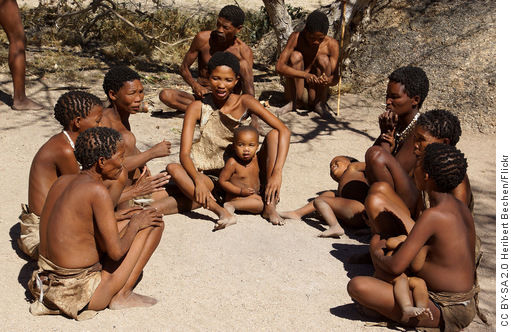
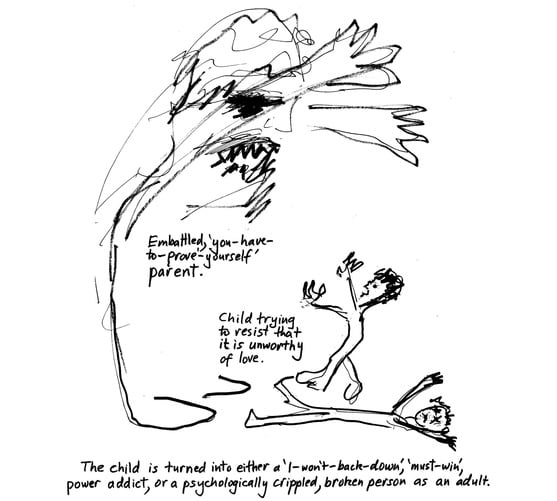
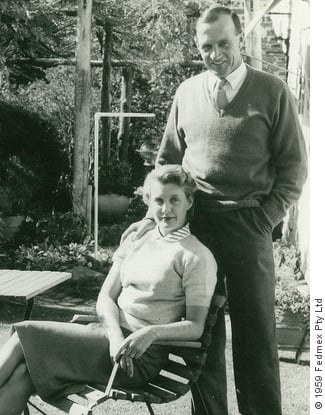
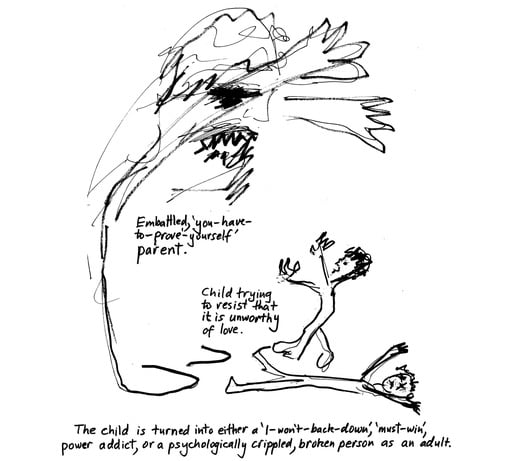

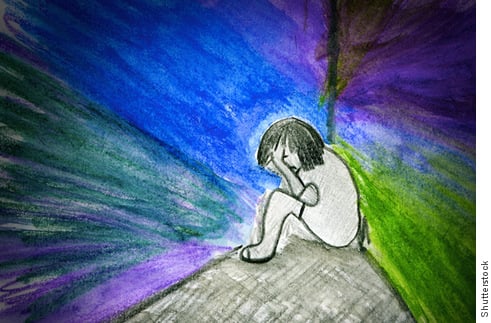
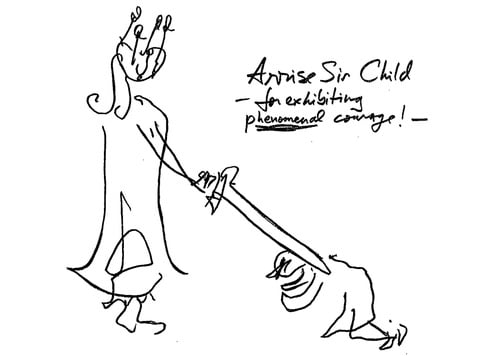

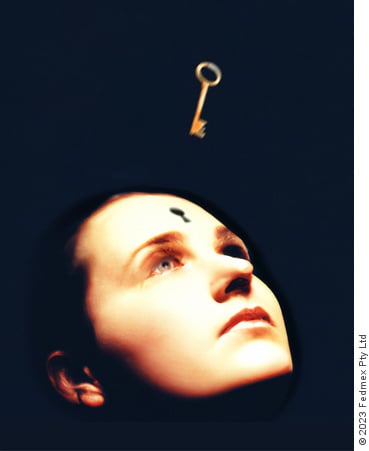

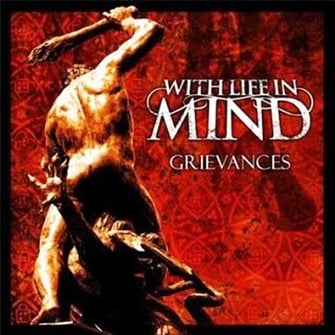
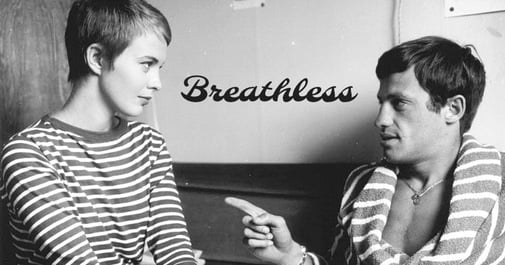
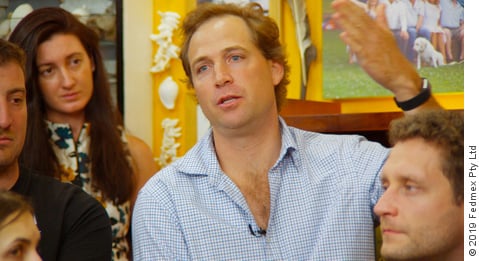

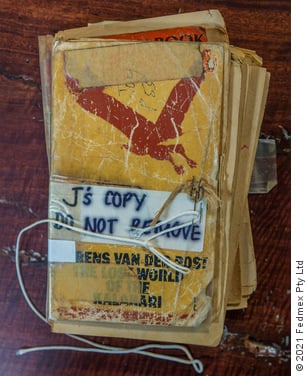
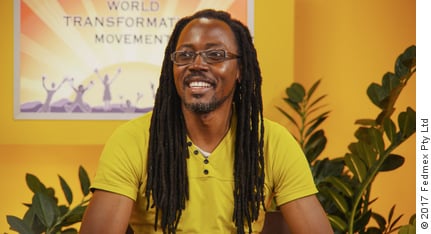
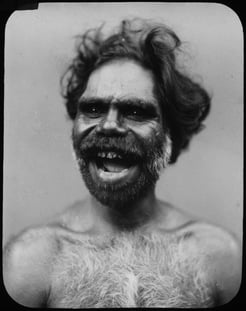
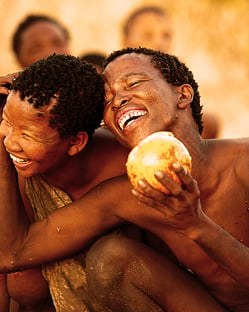
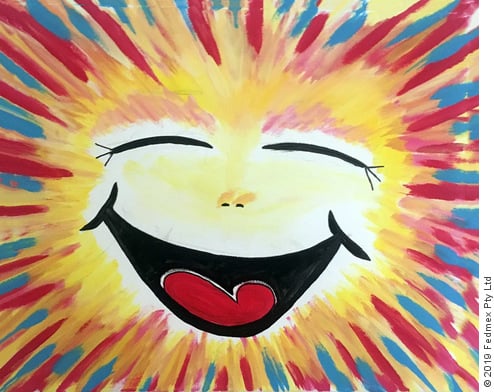
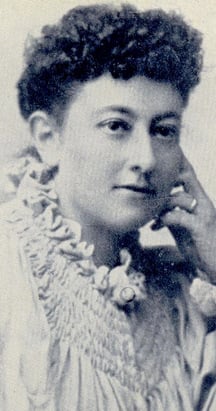
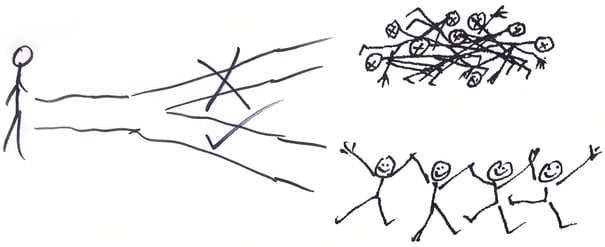
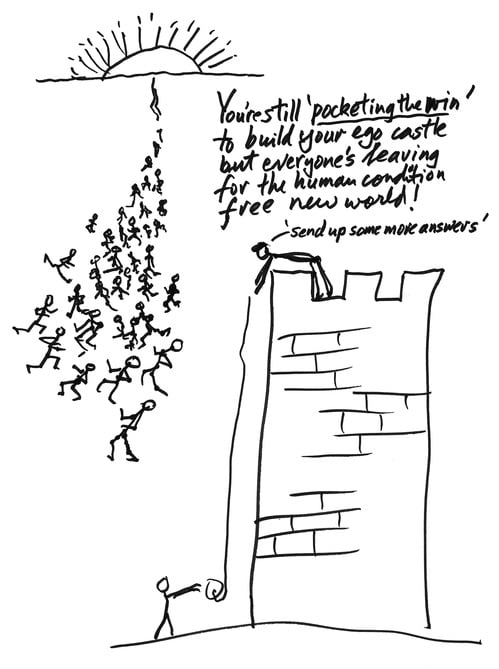
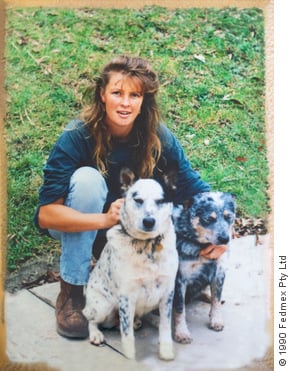
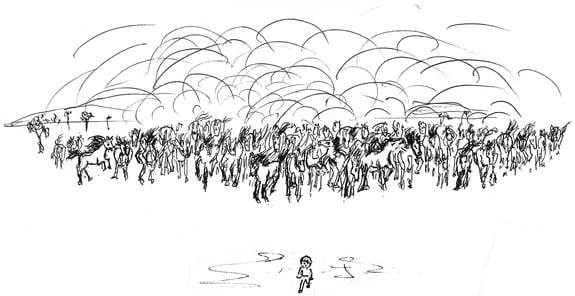
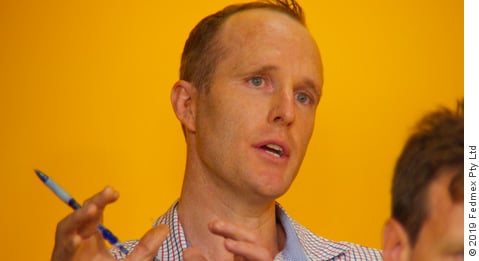
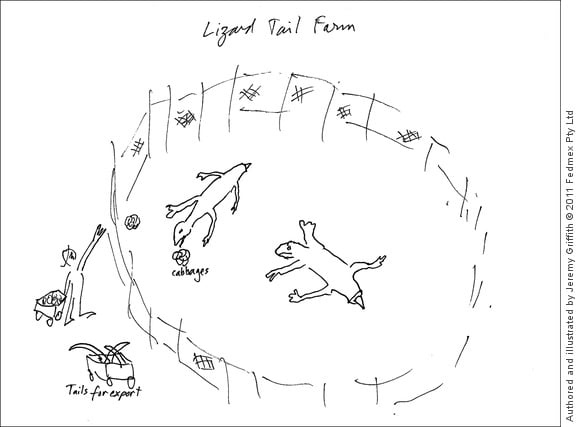

Please wait while the comments load...
Comments